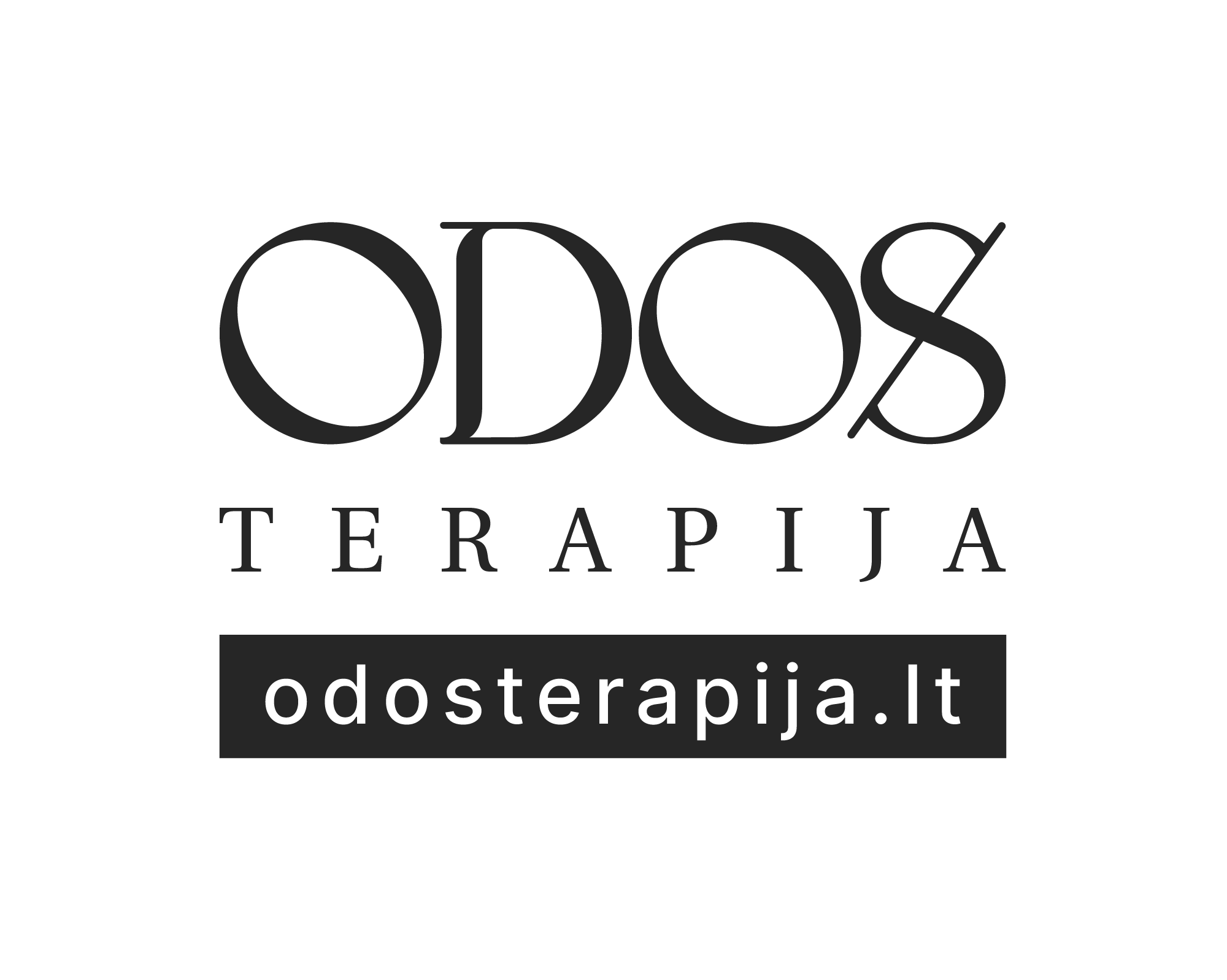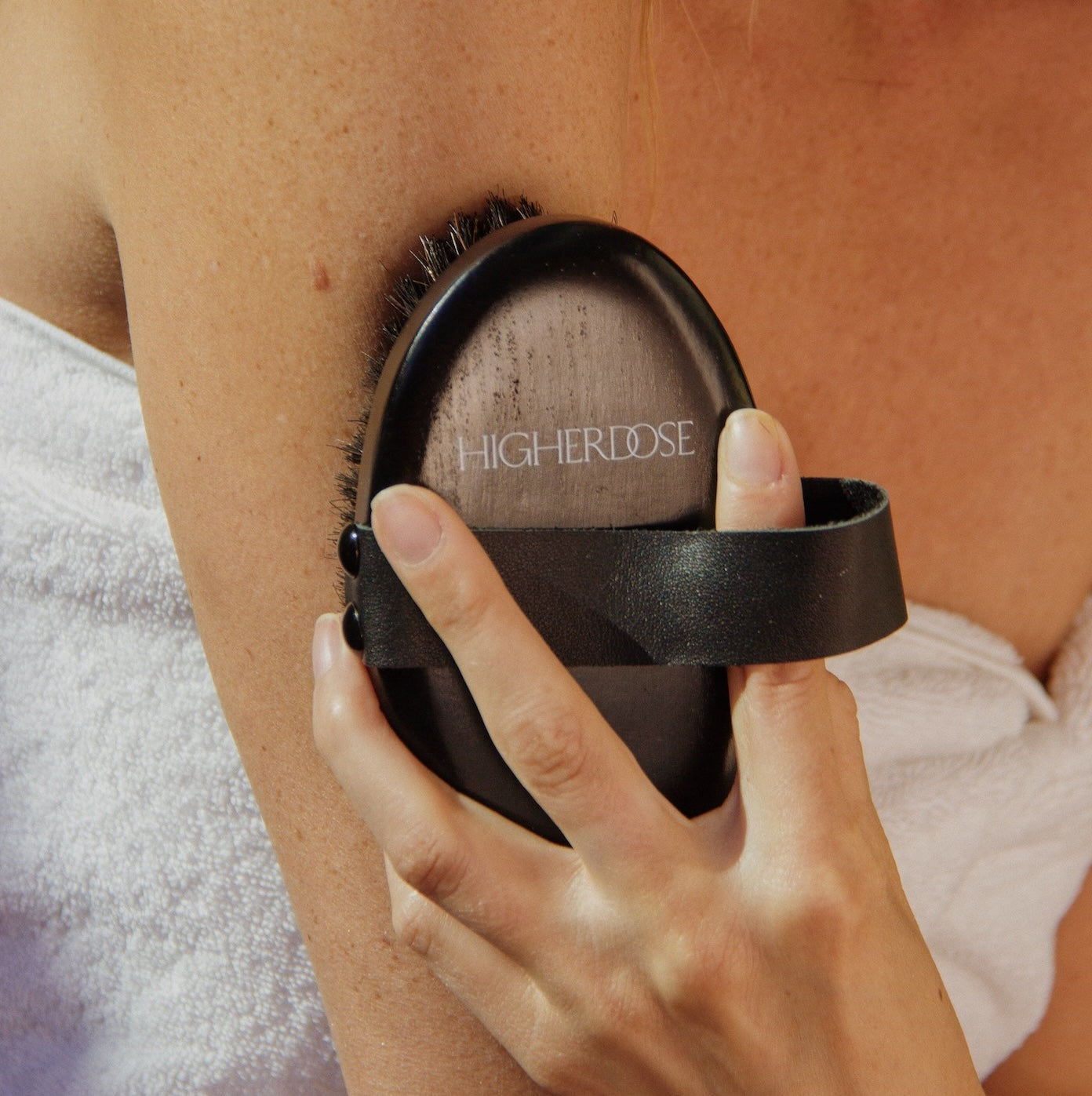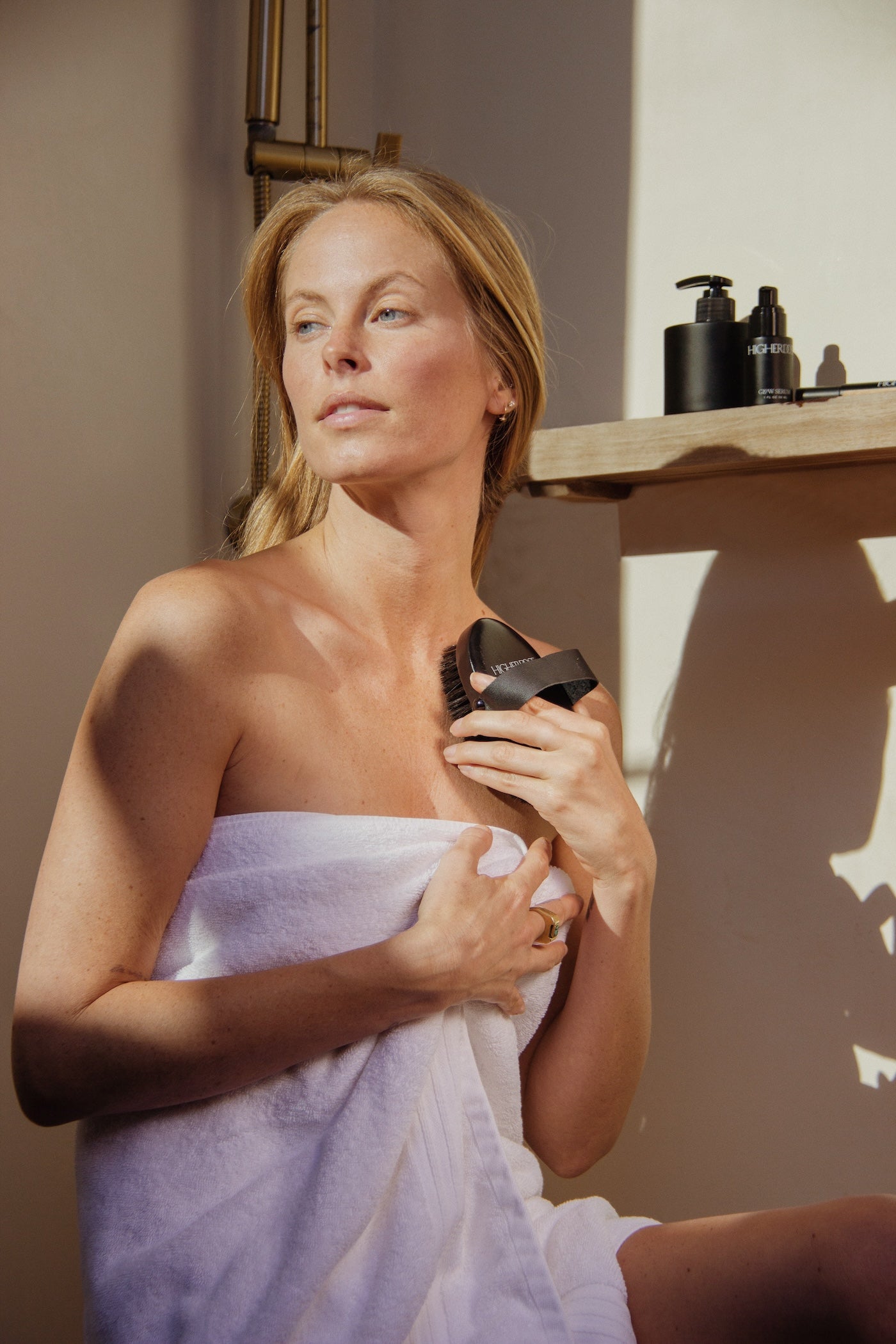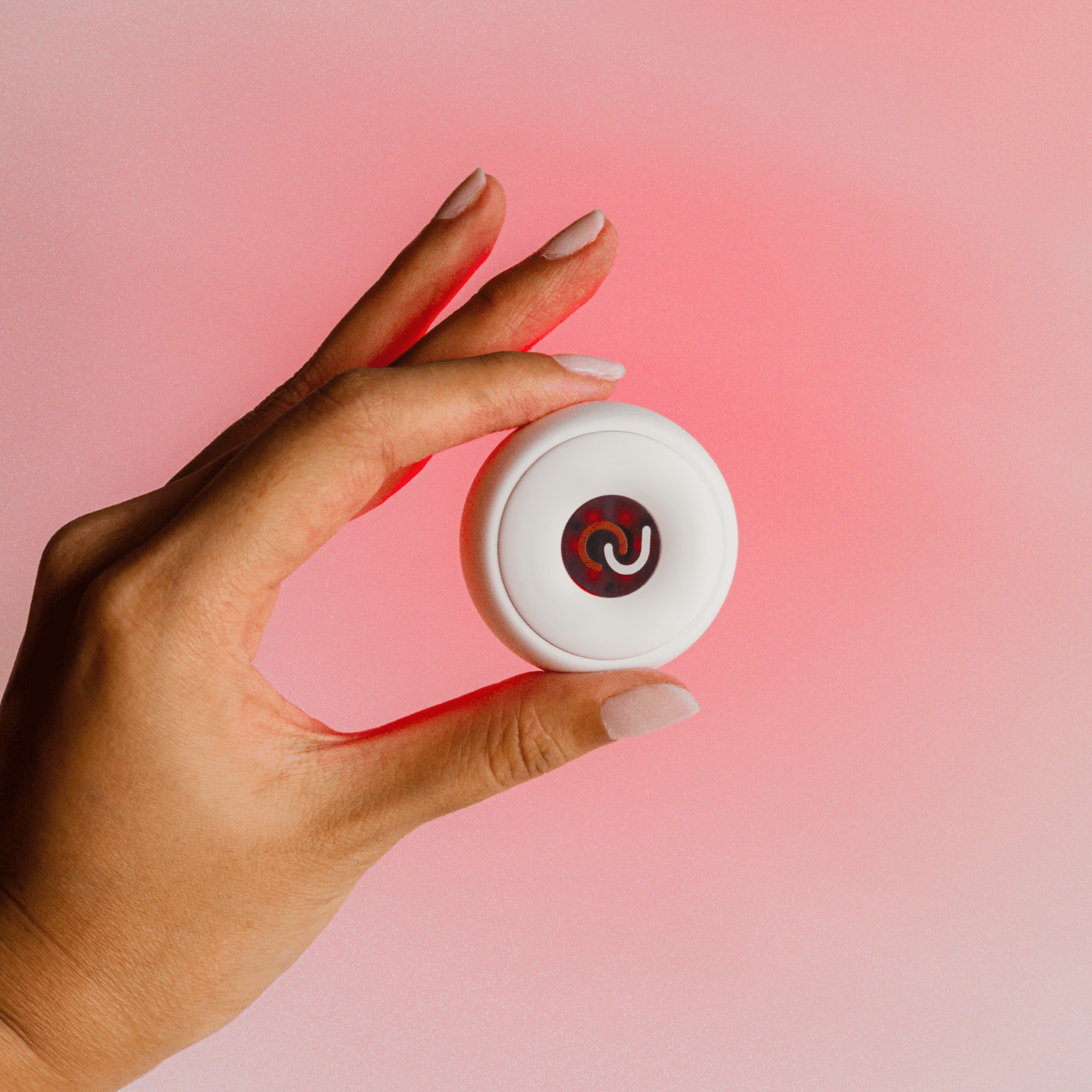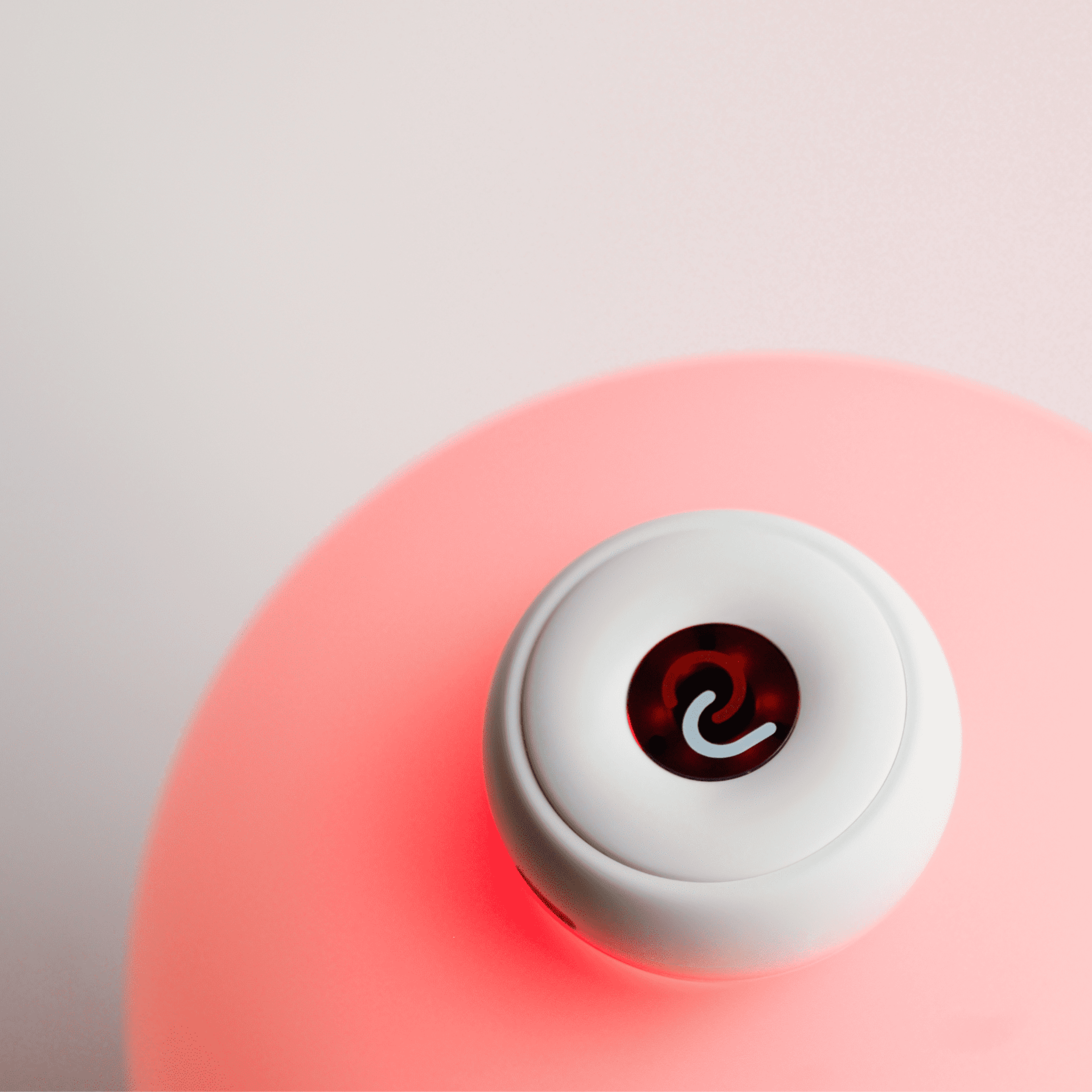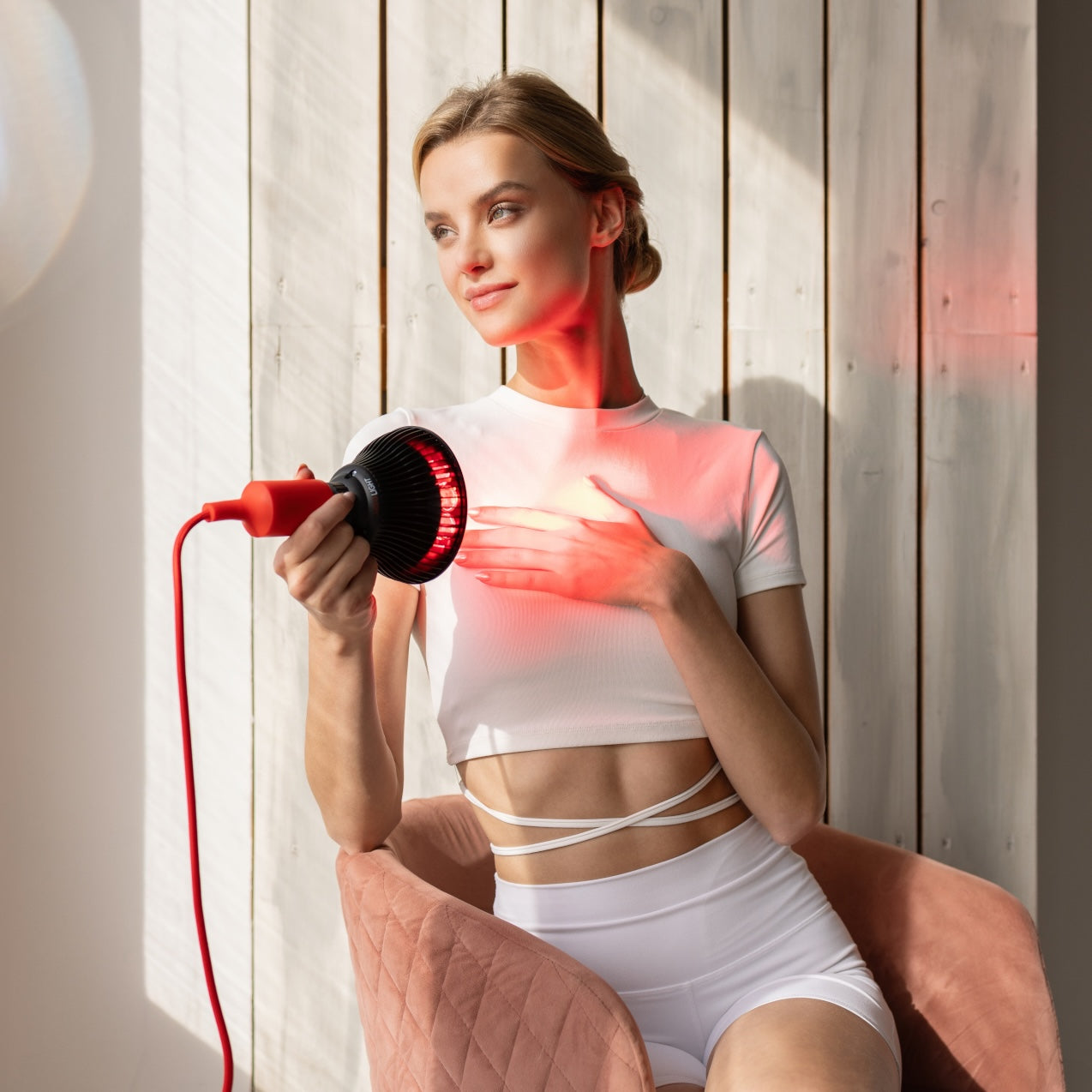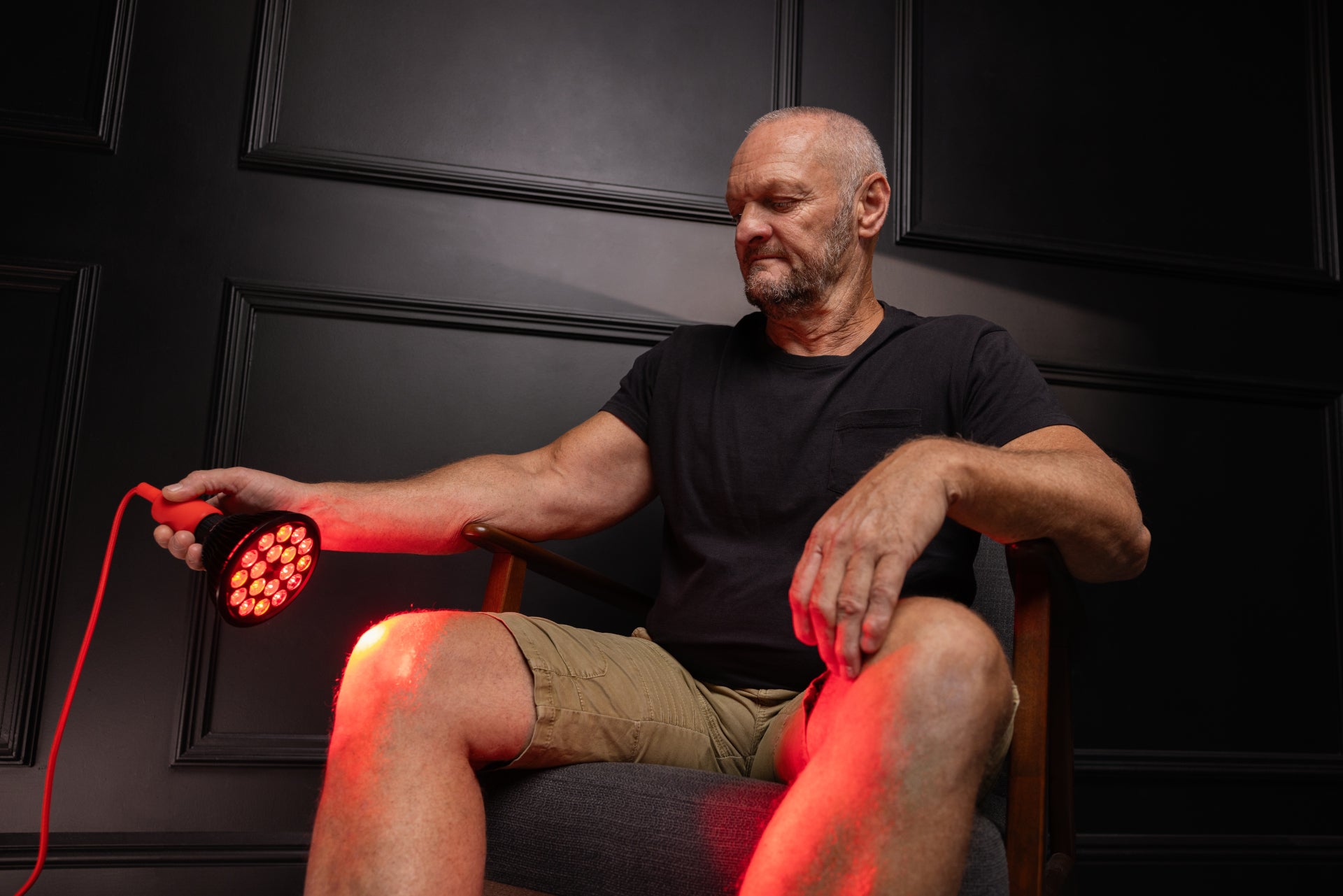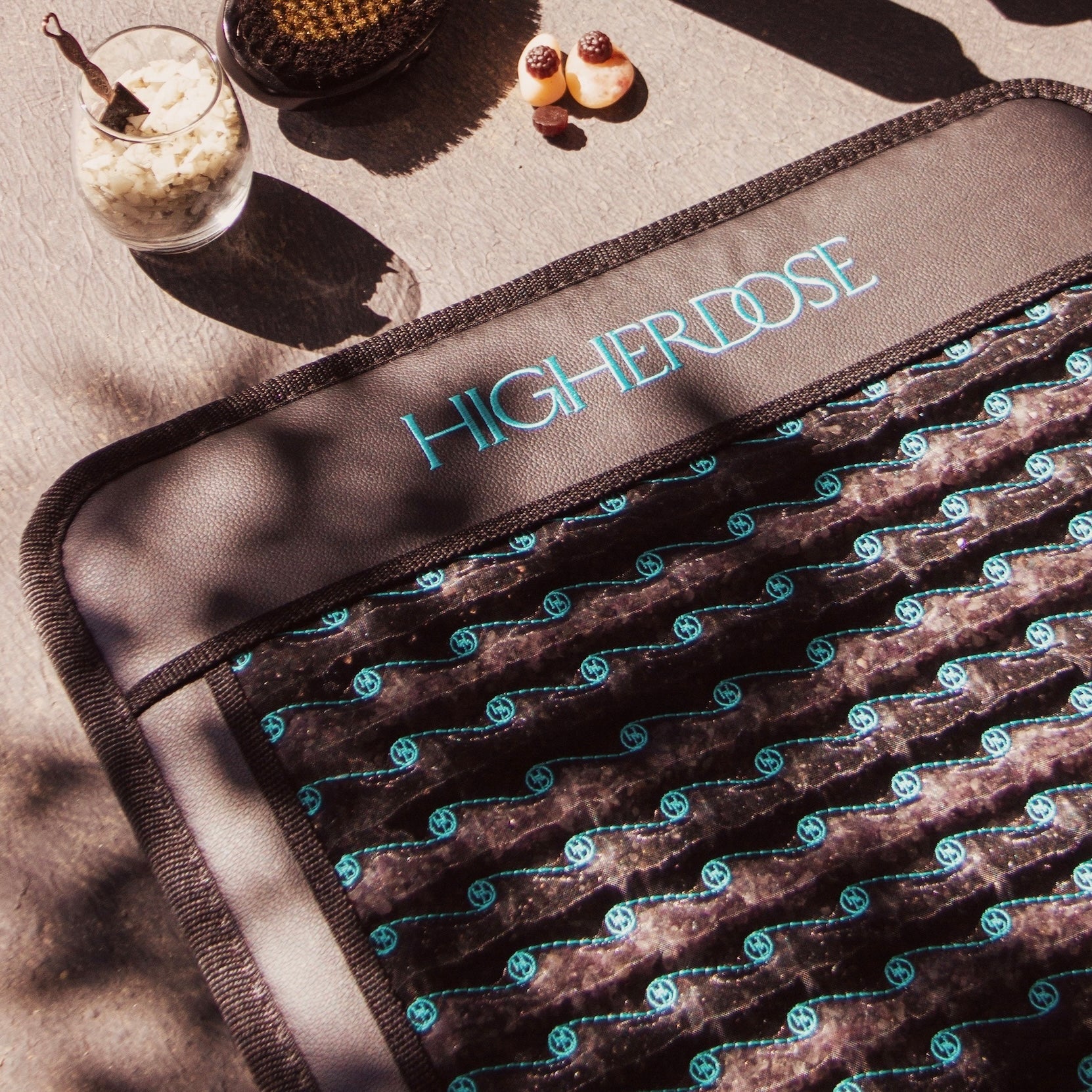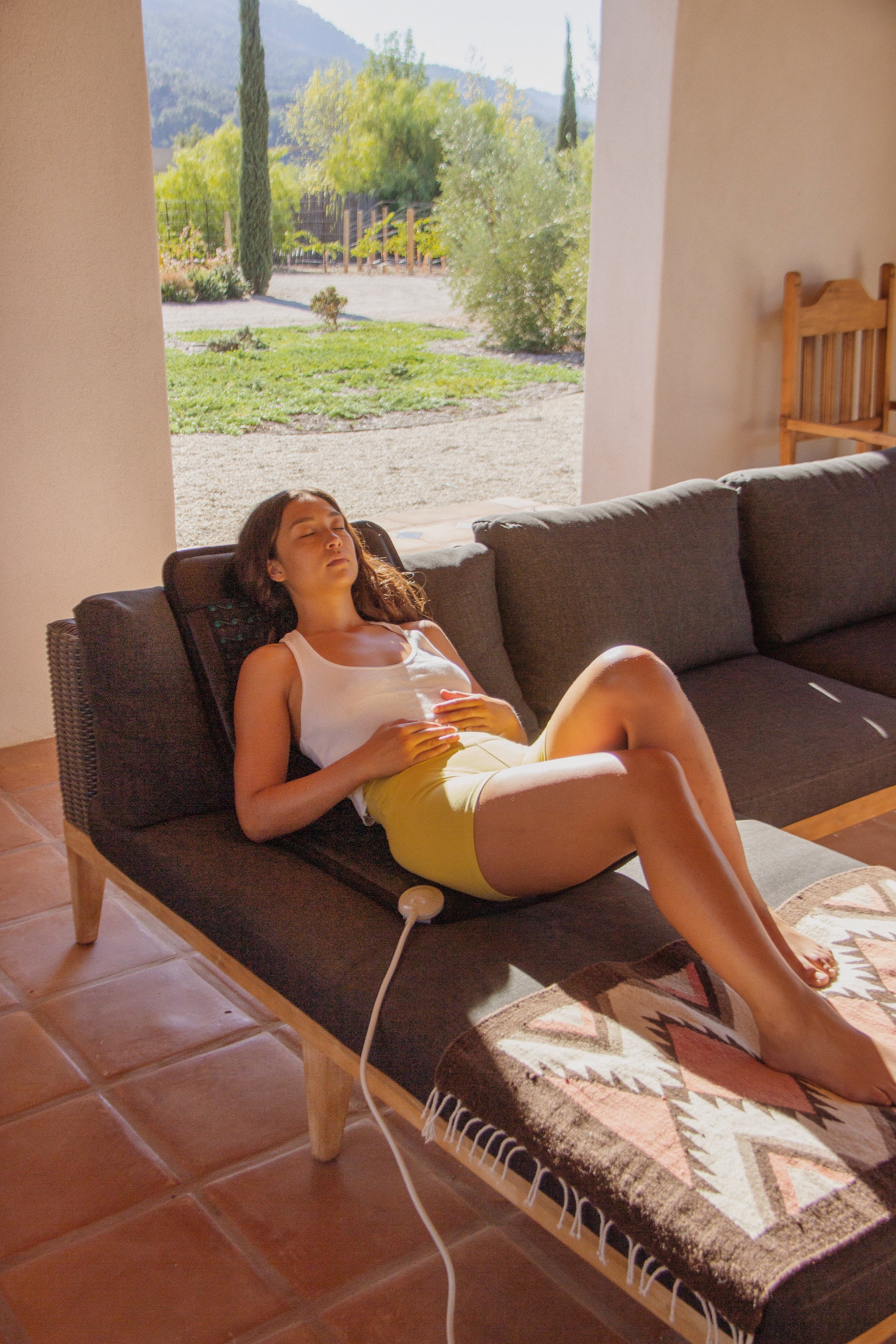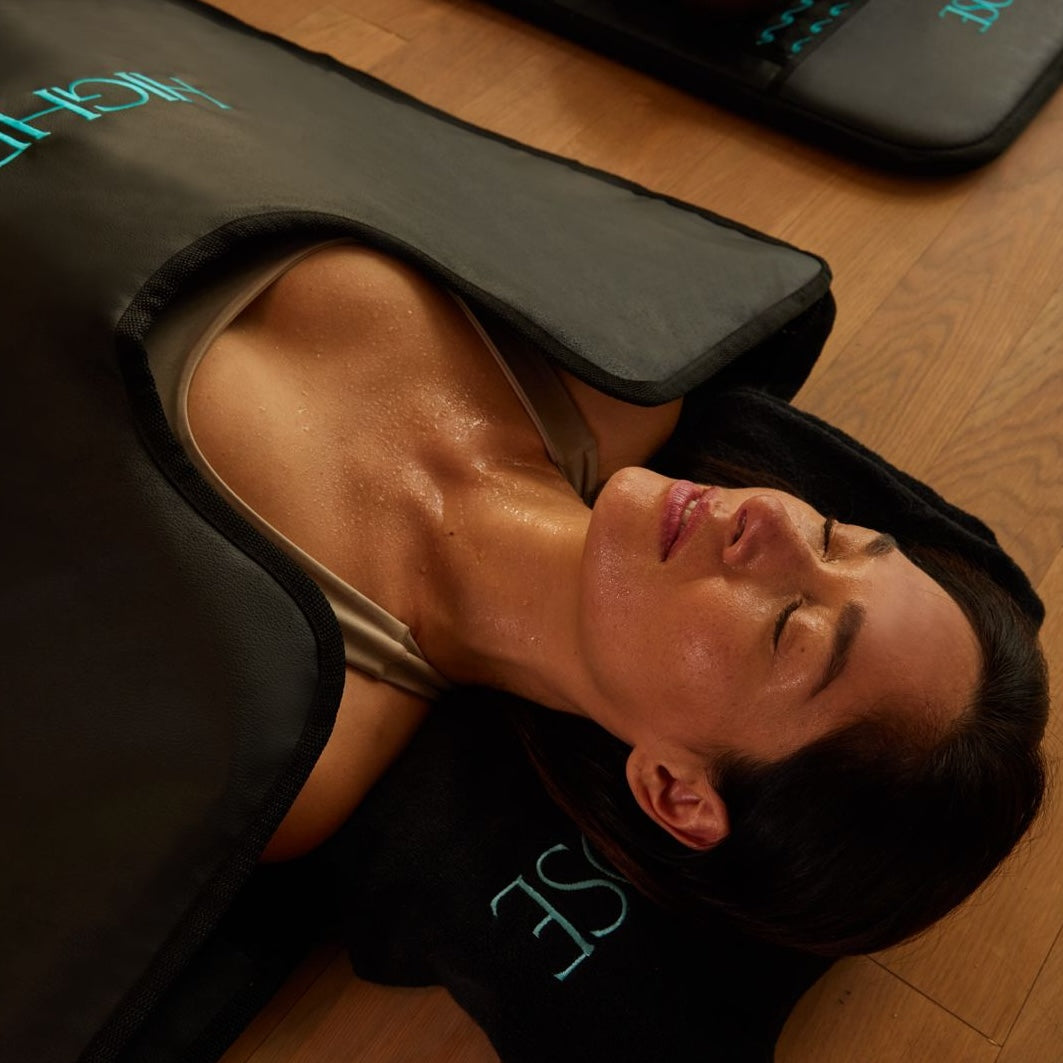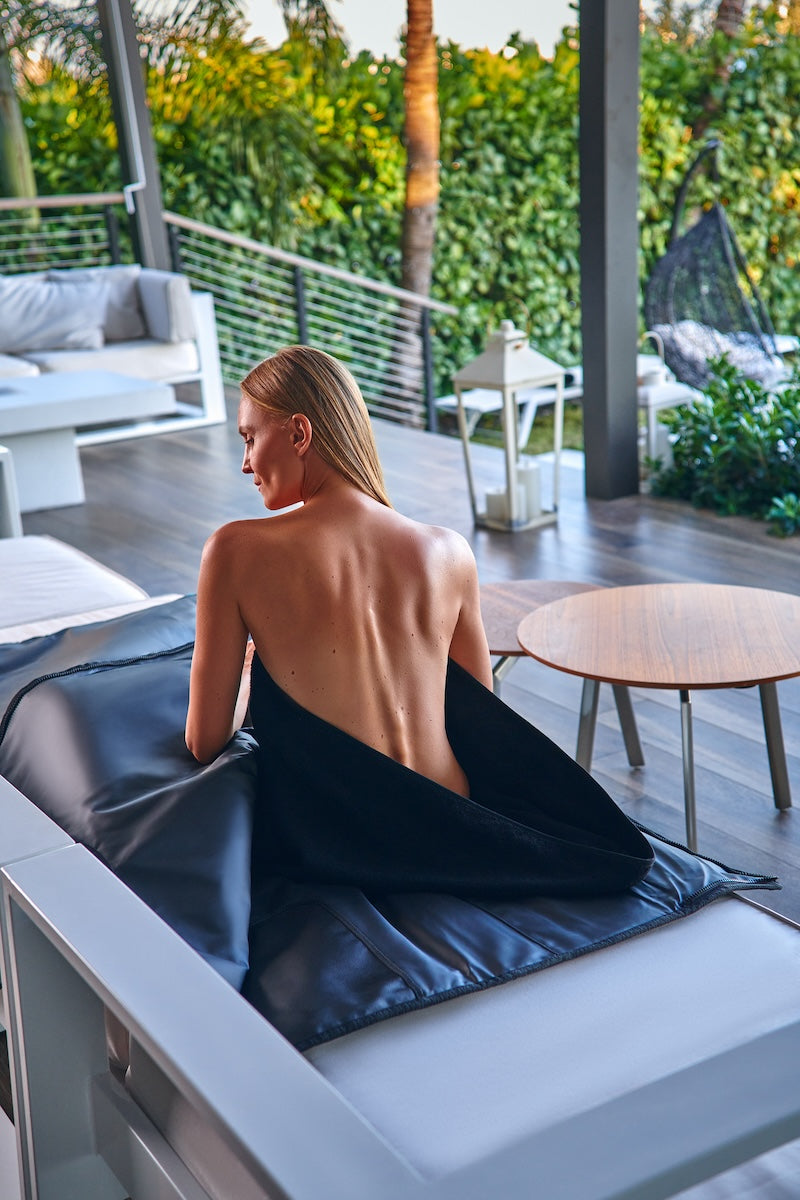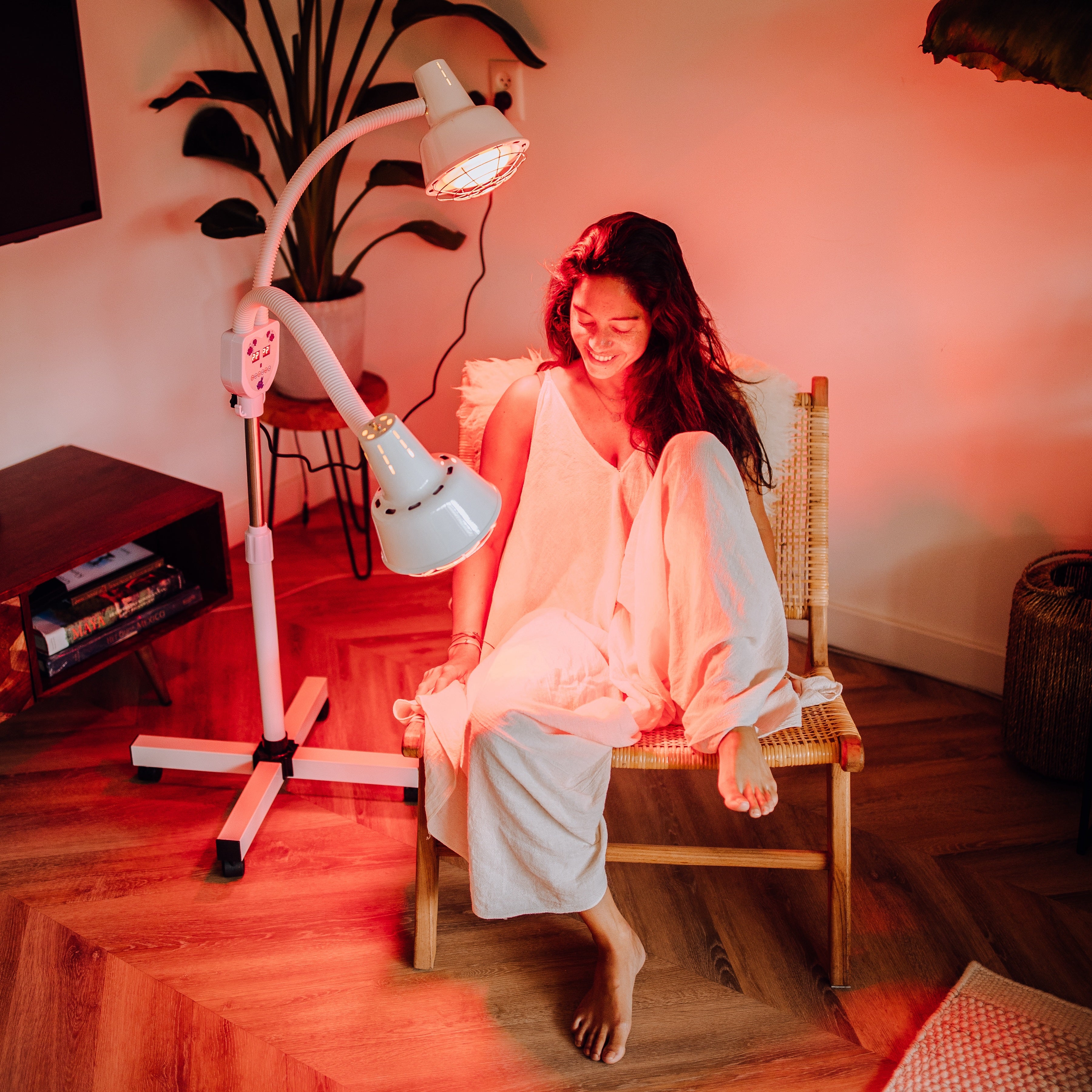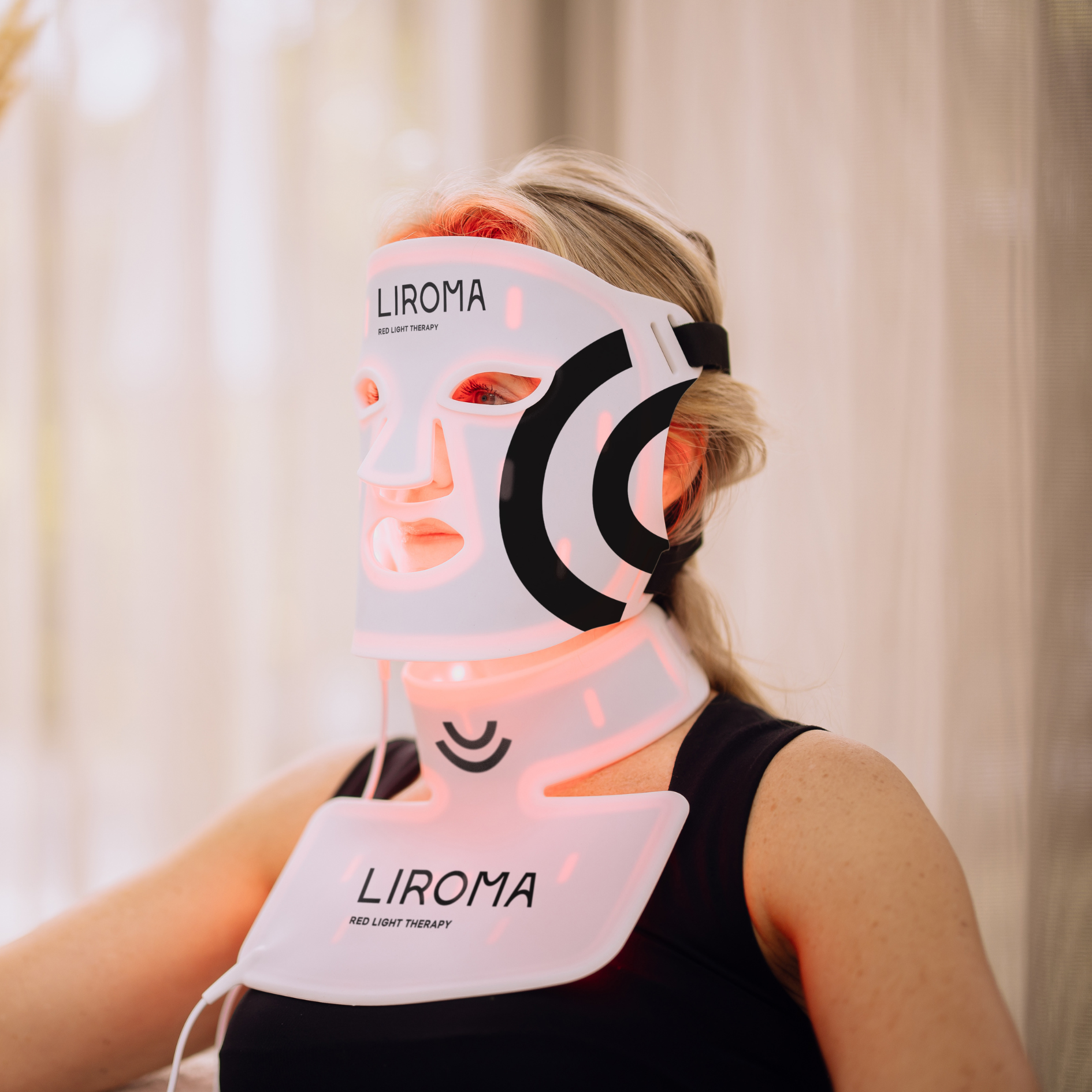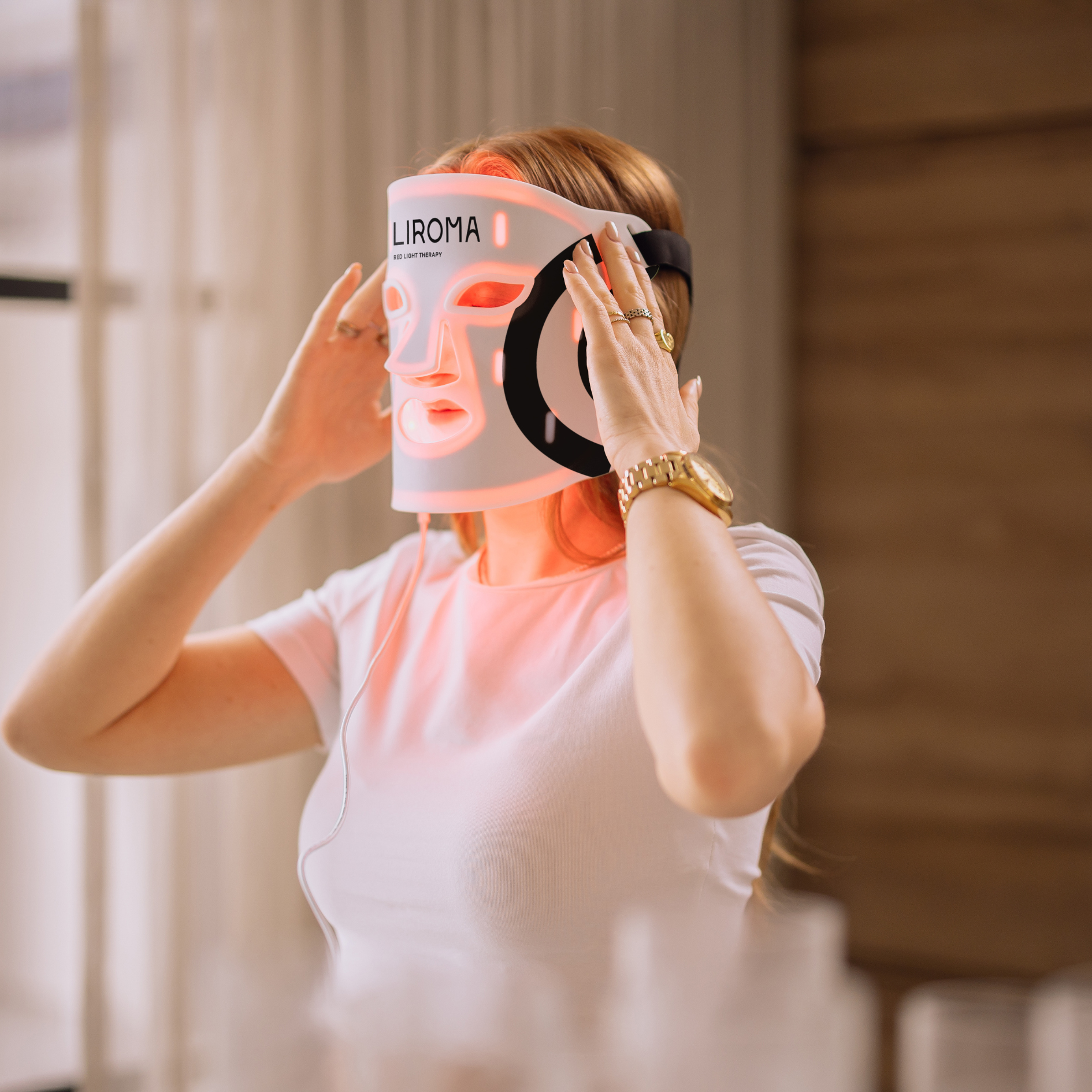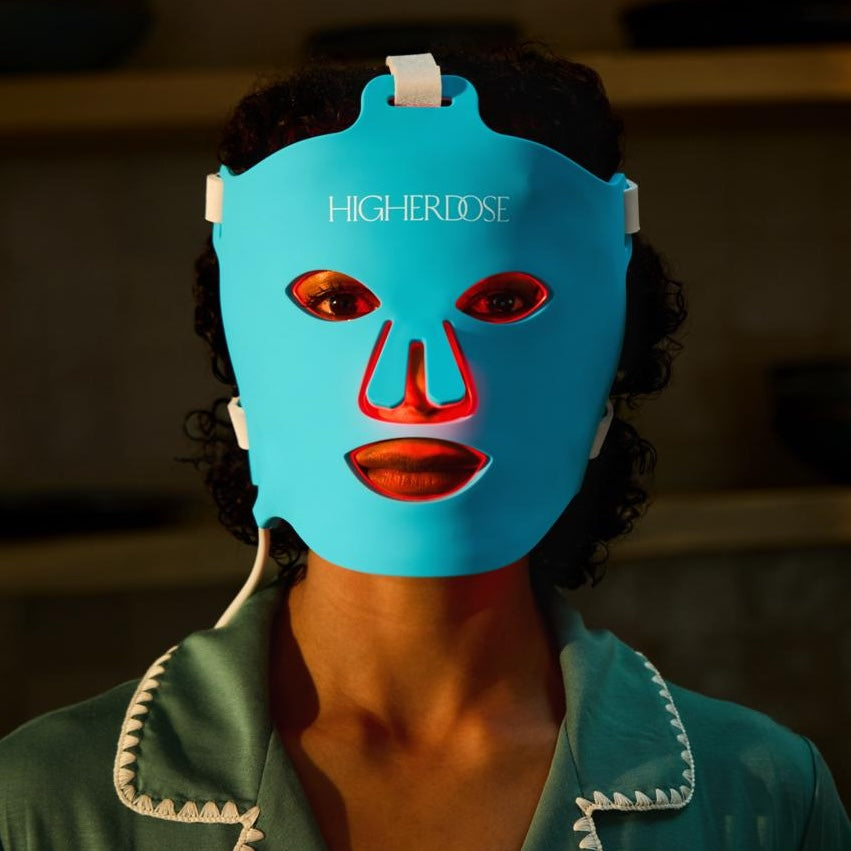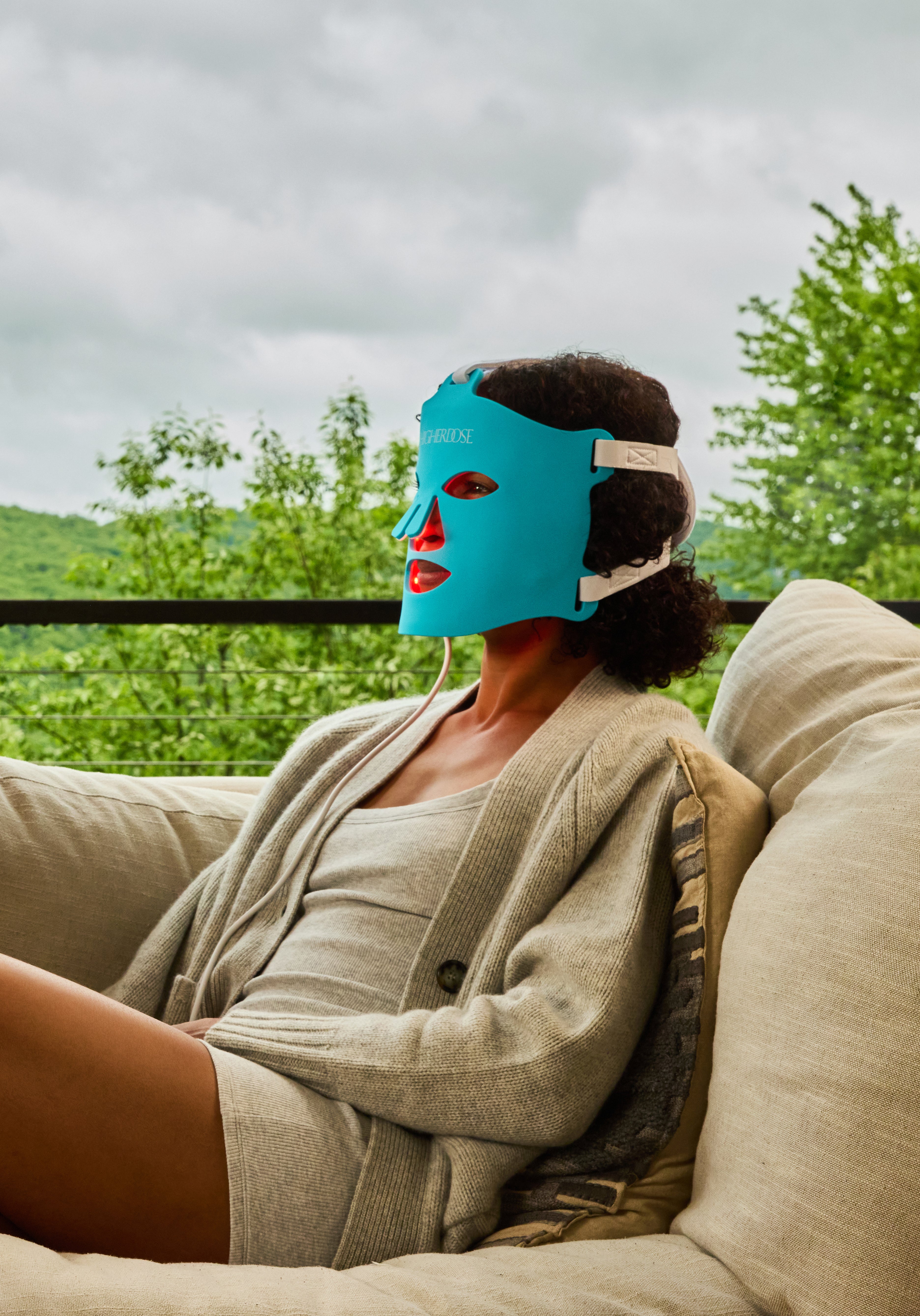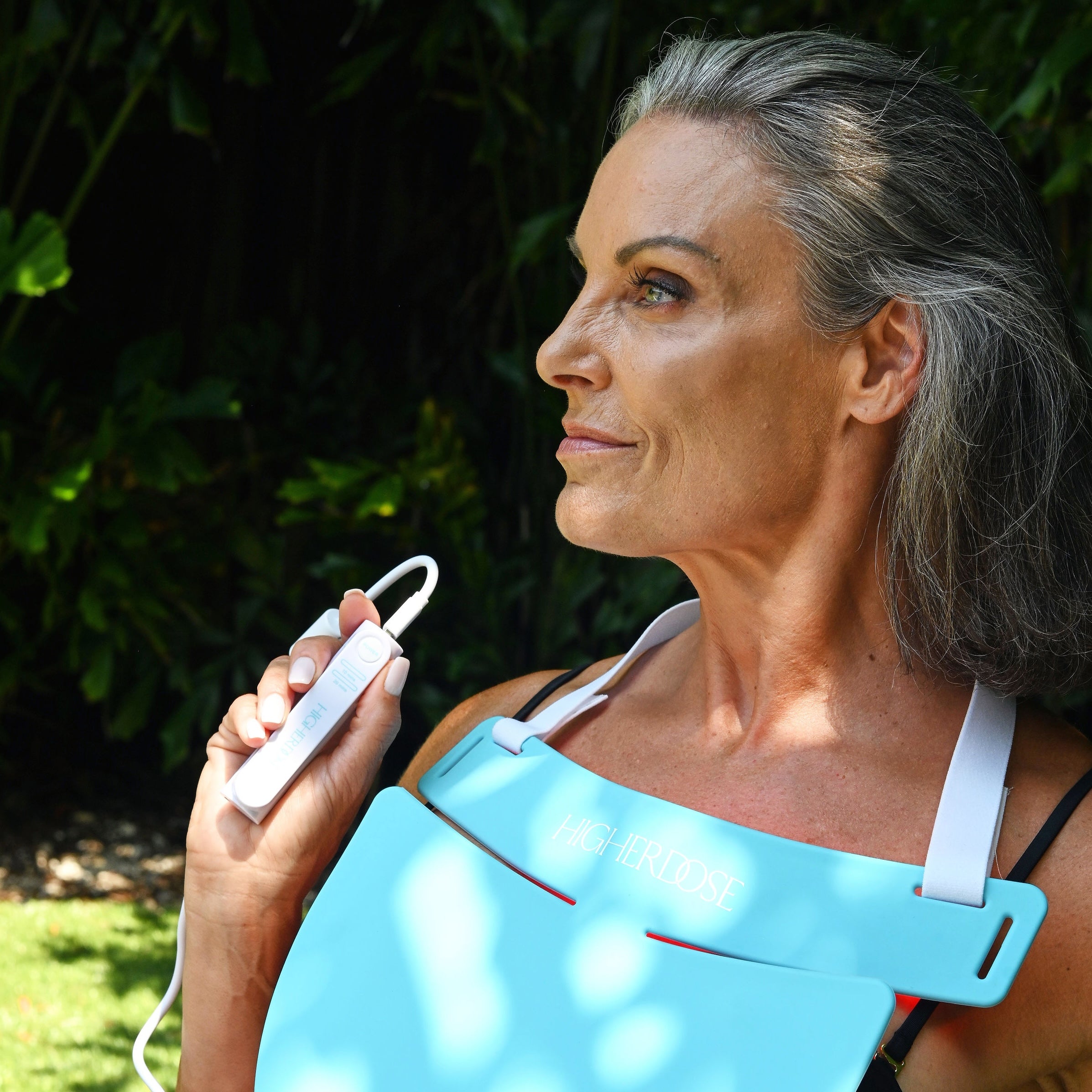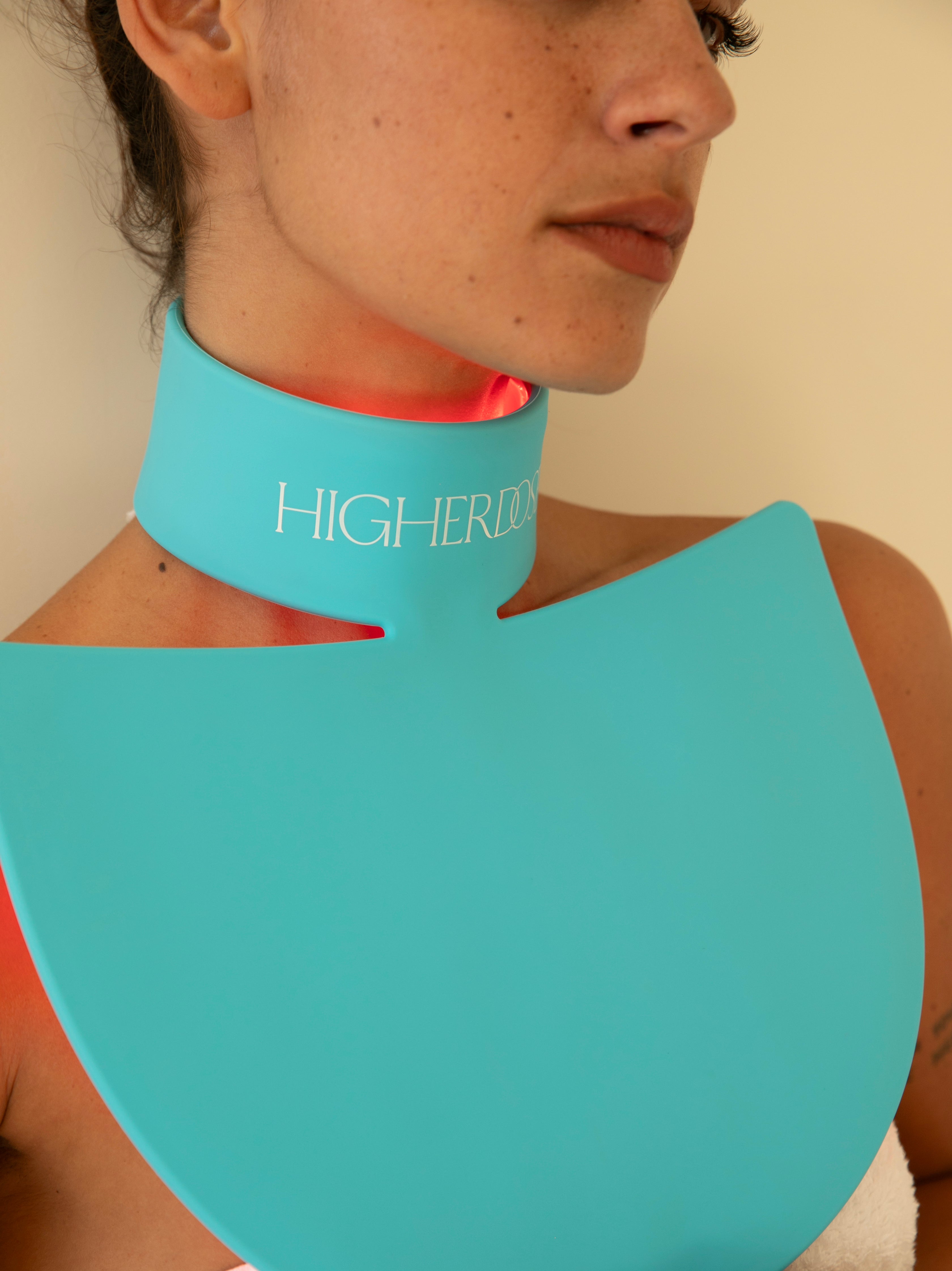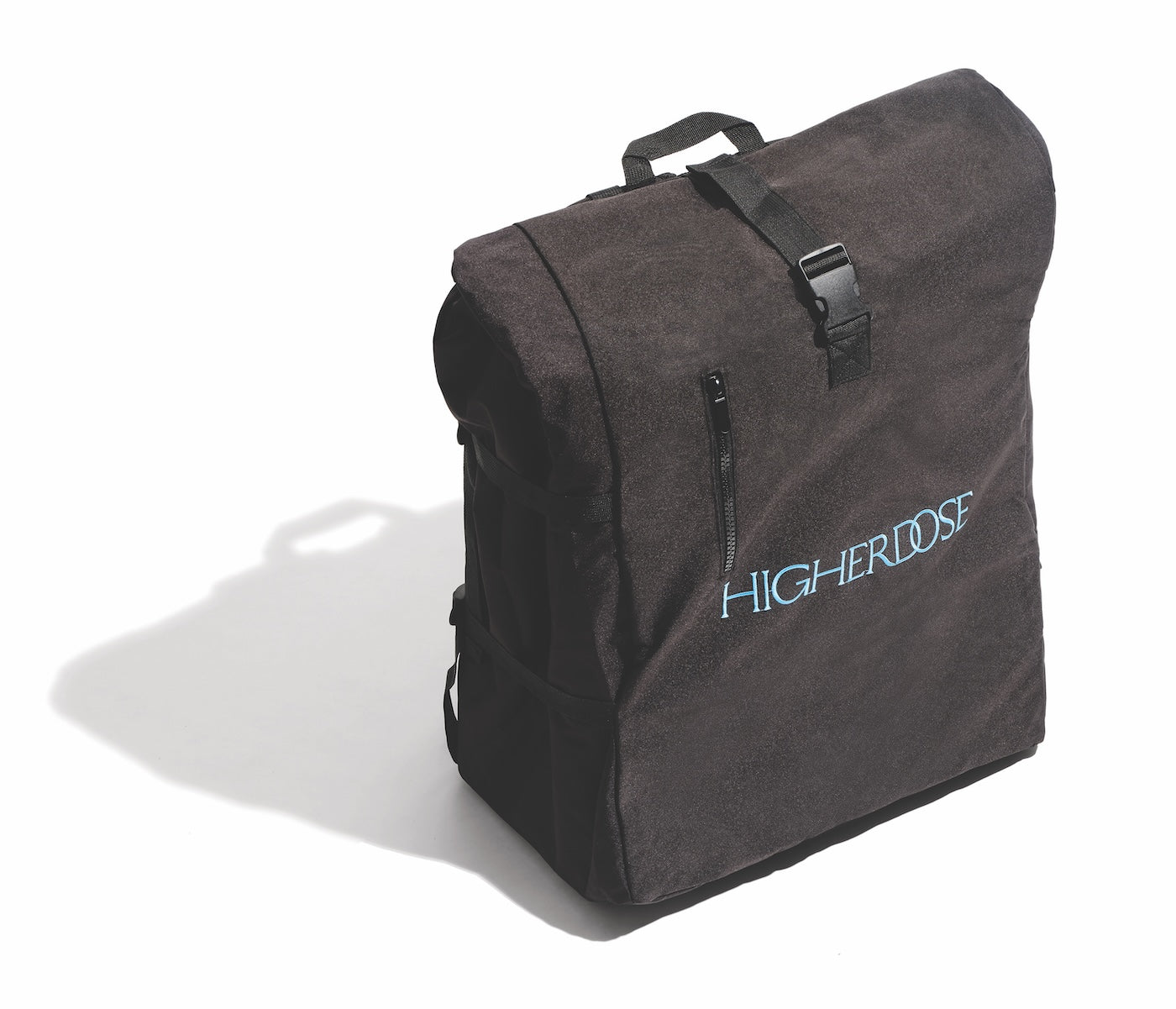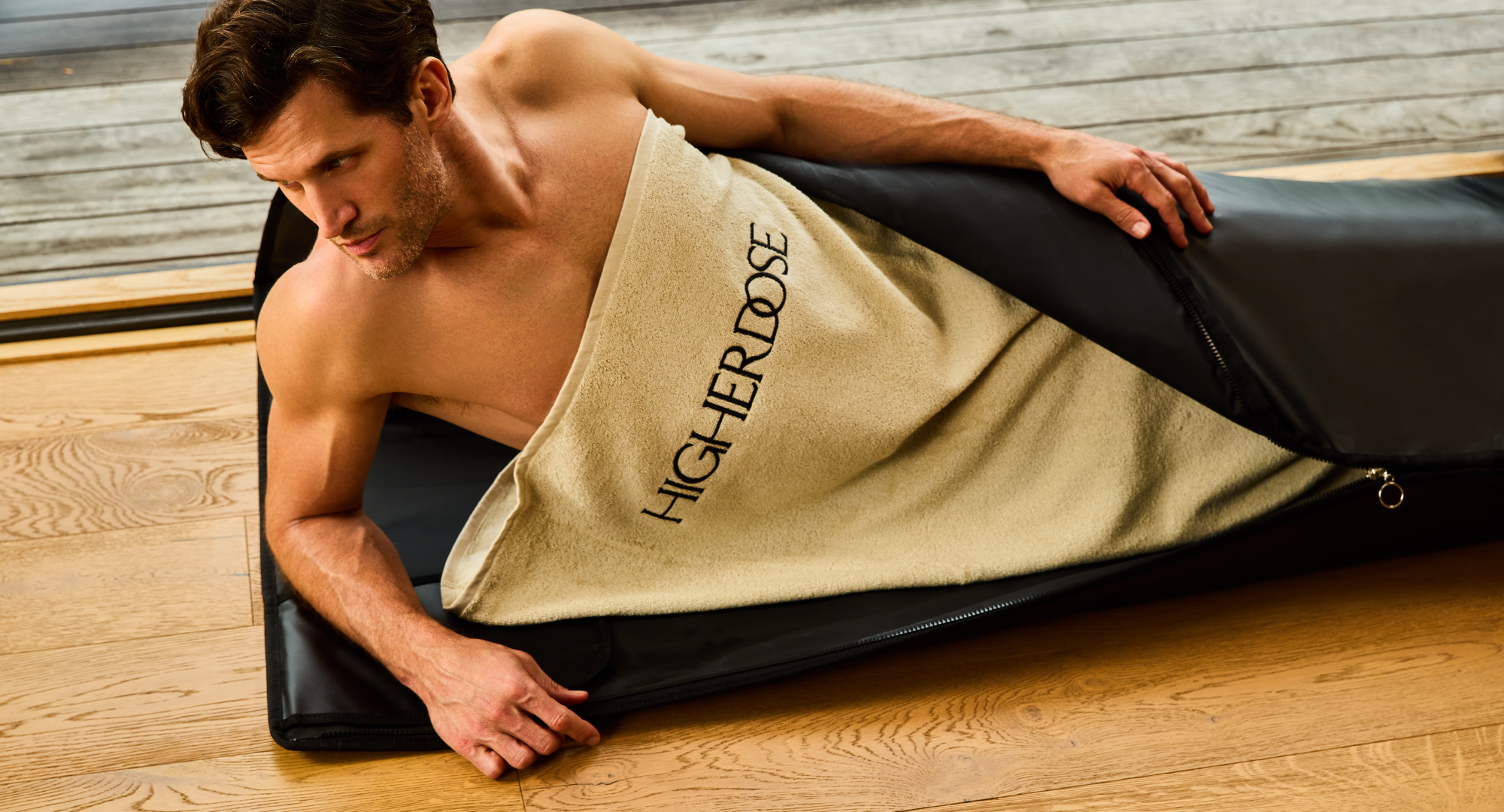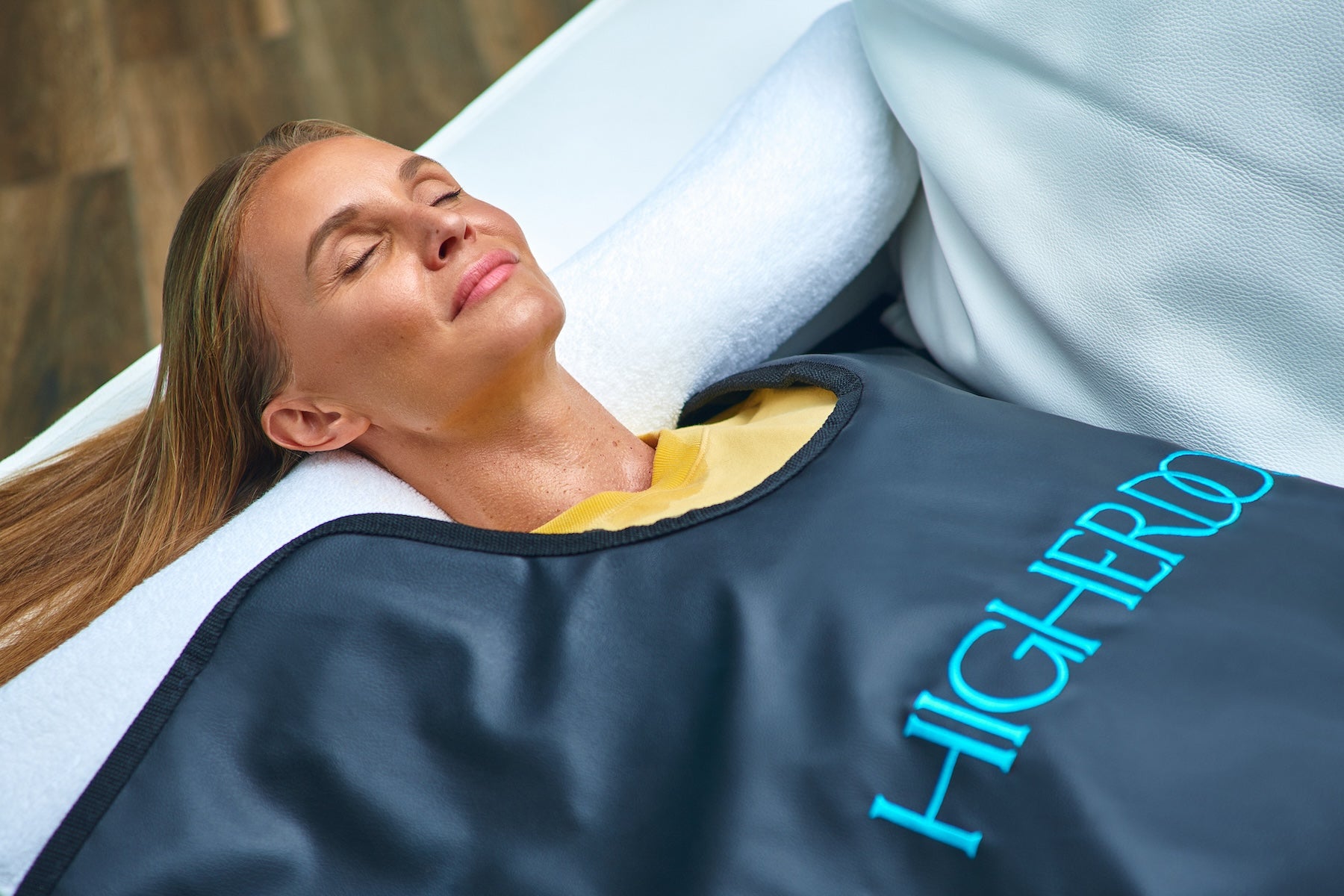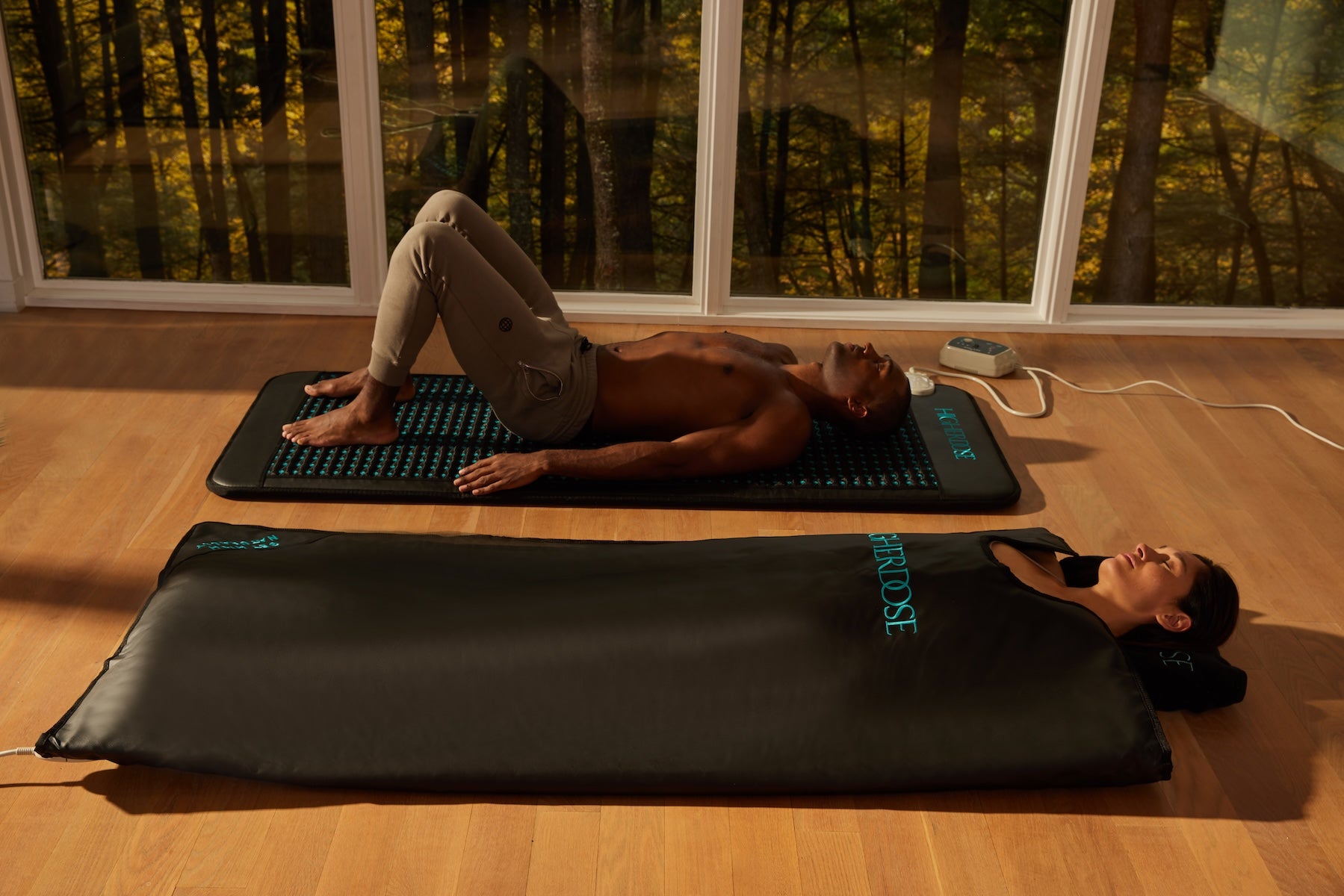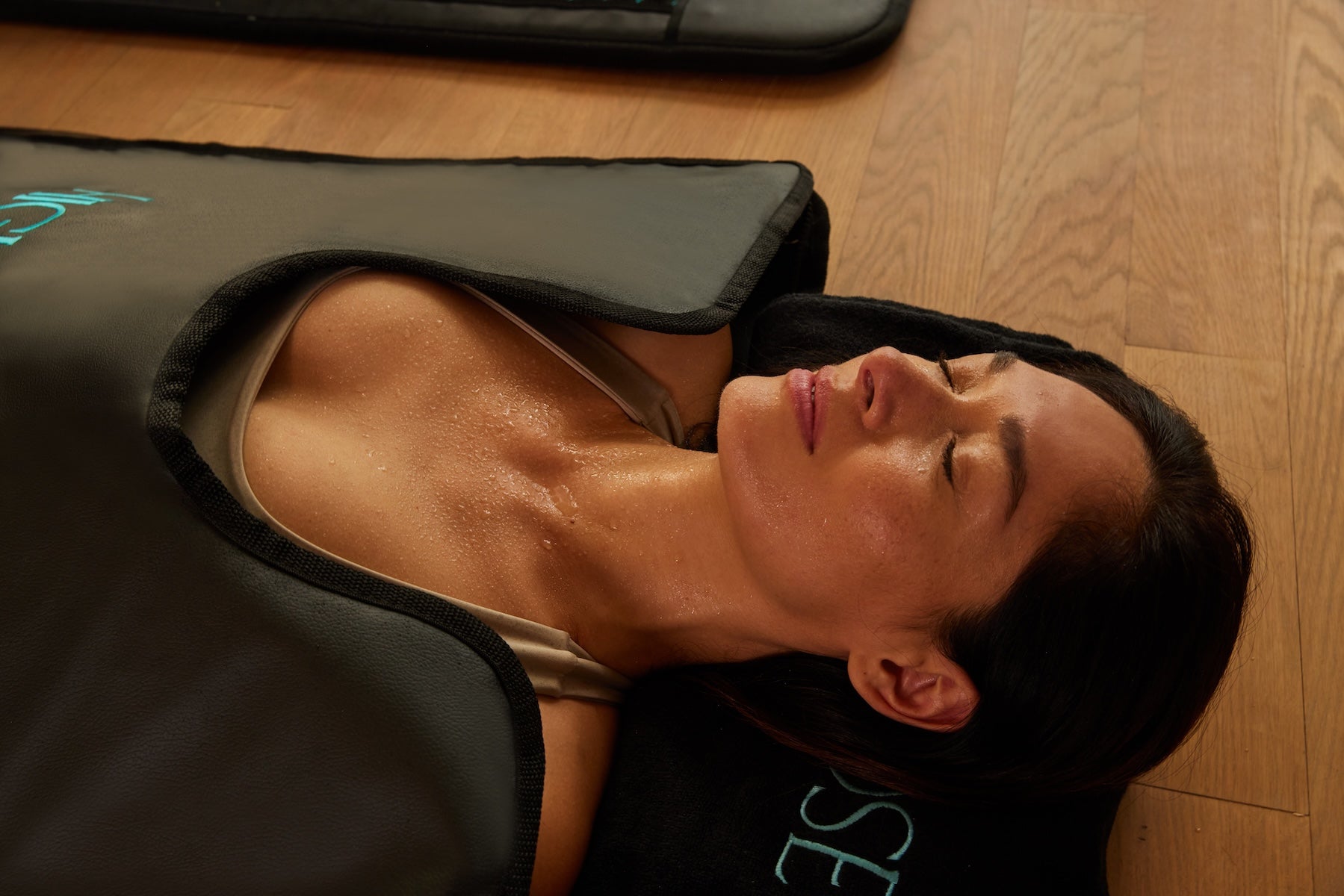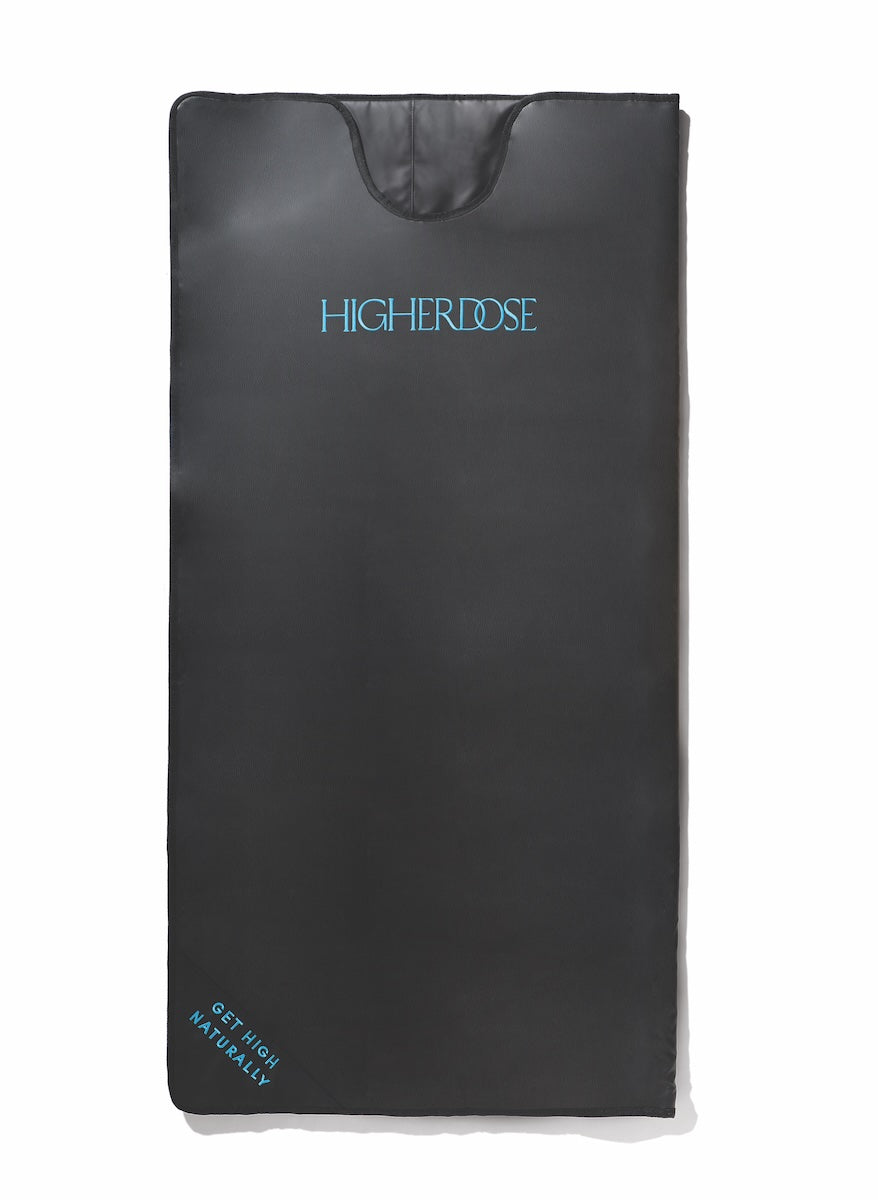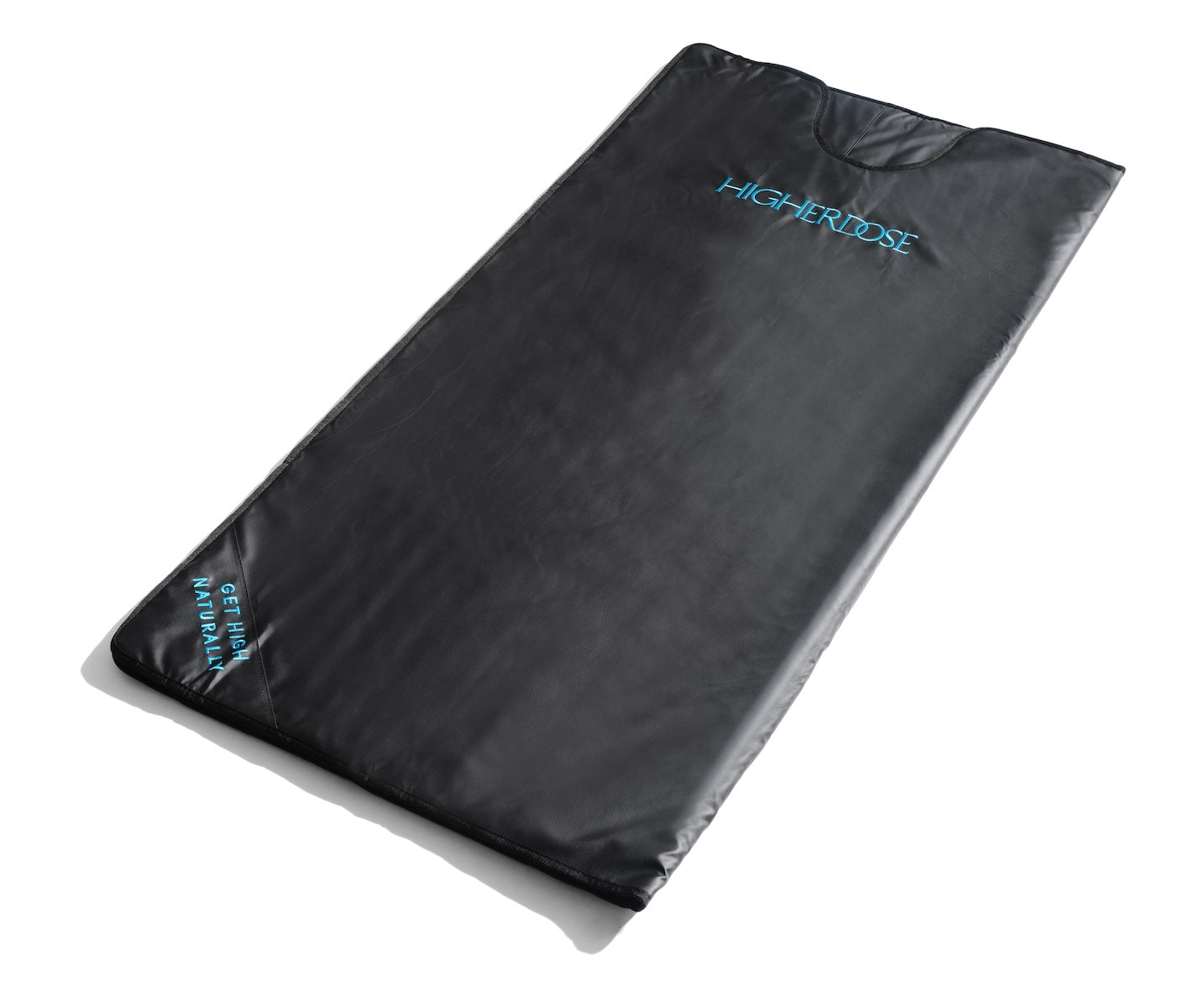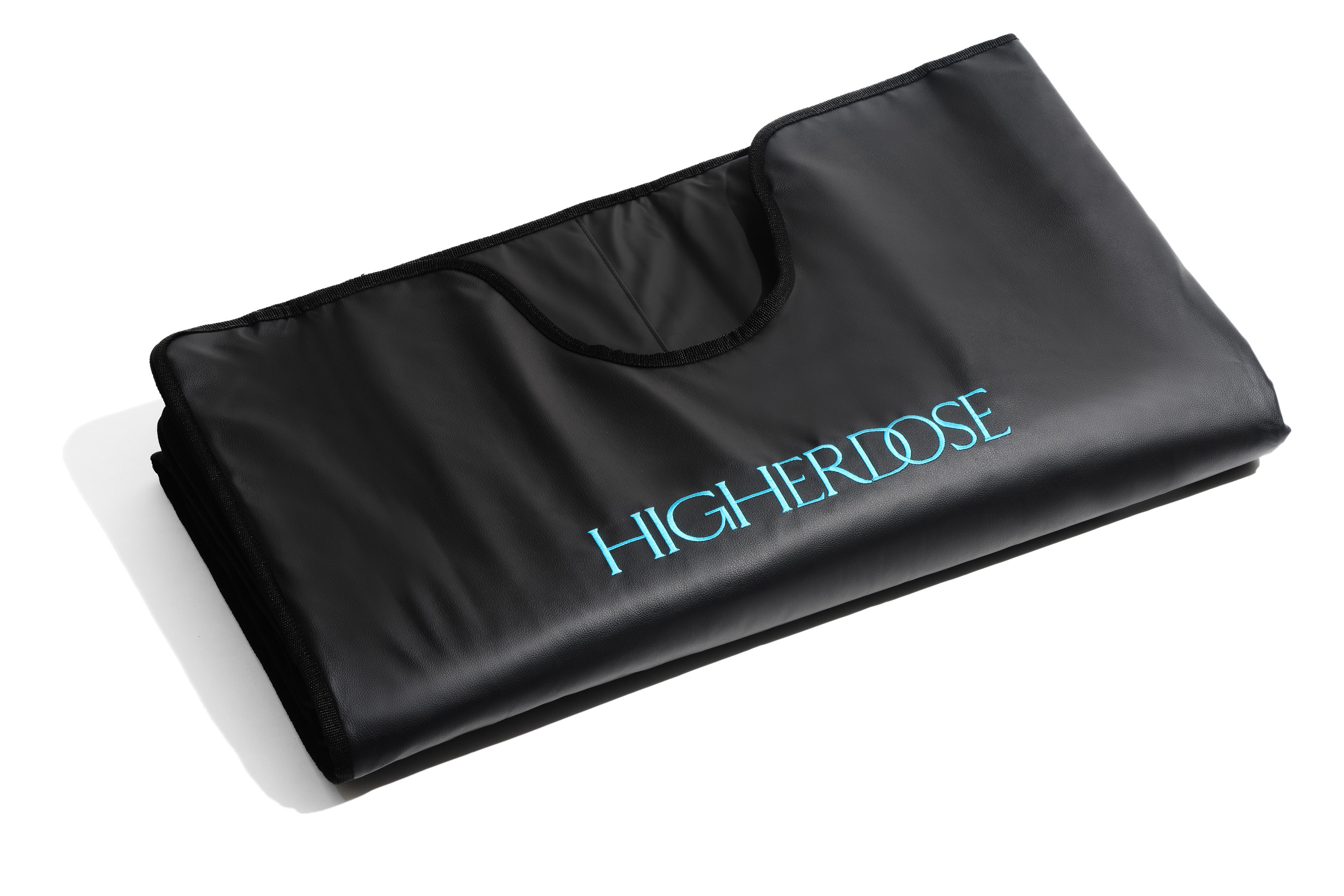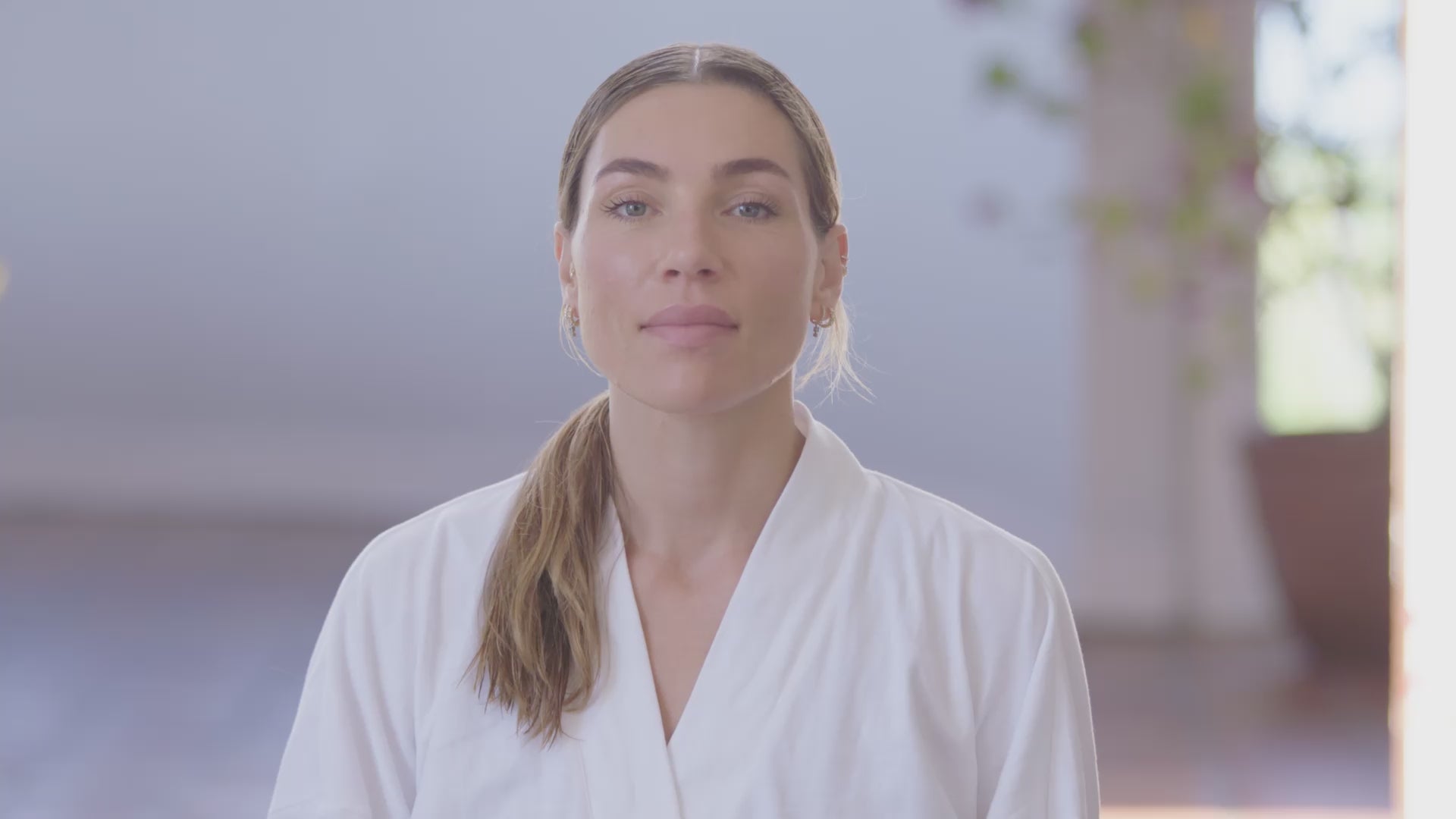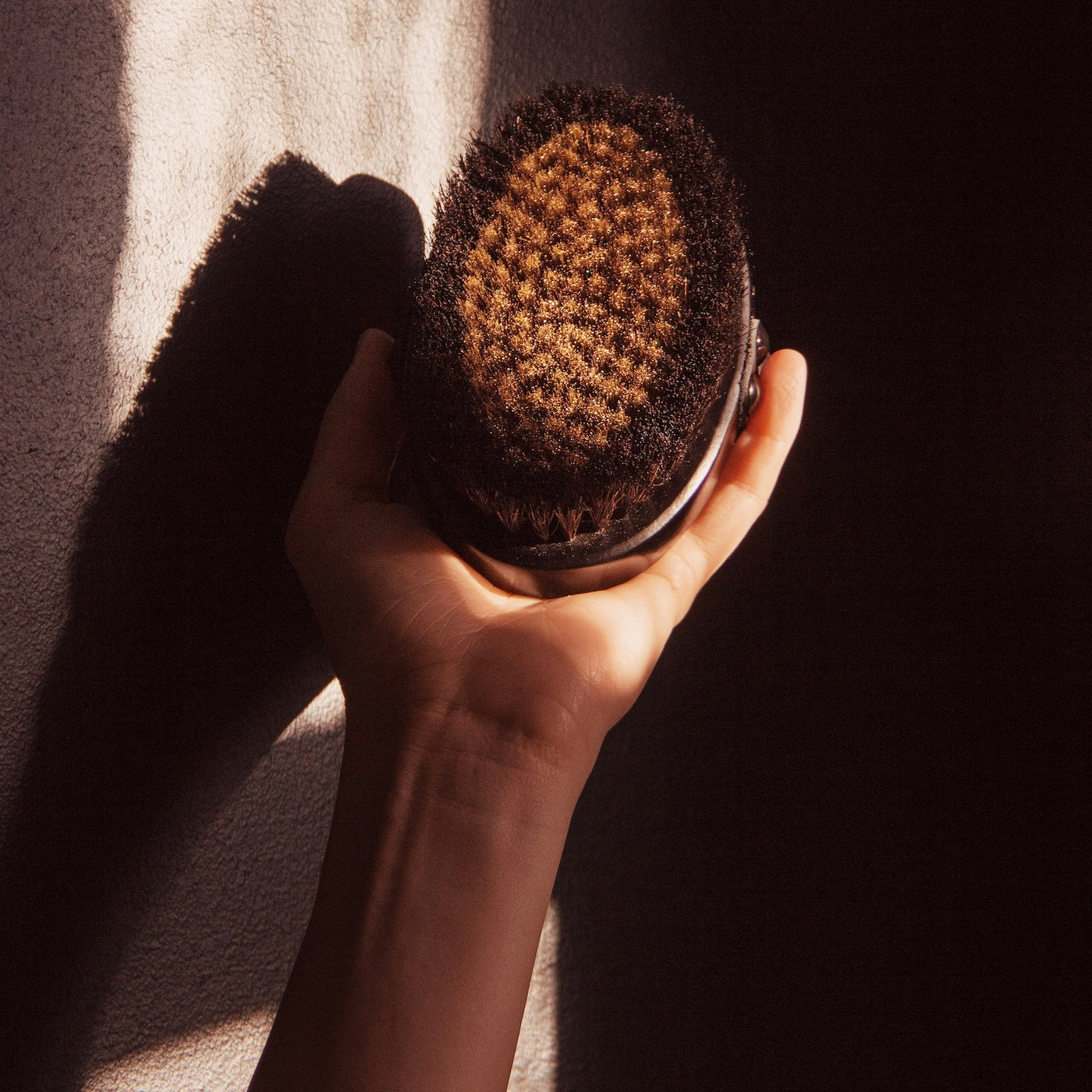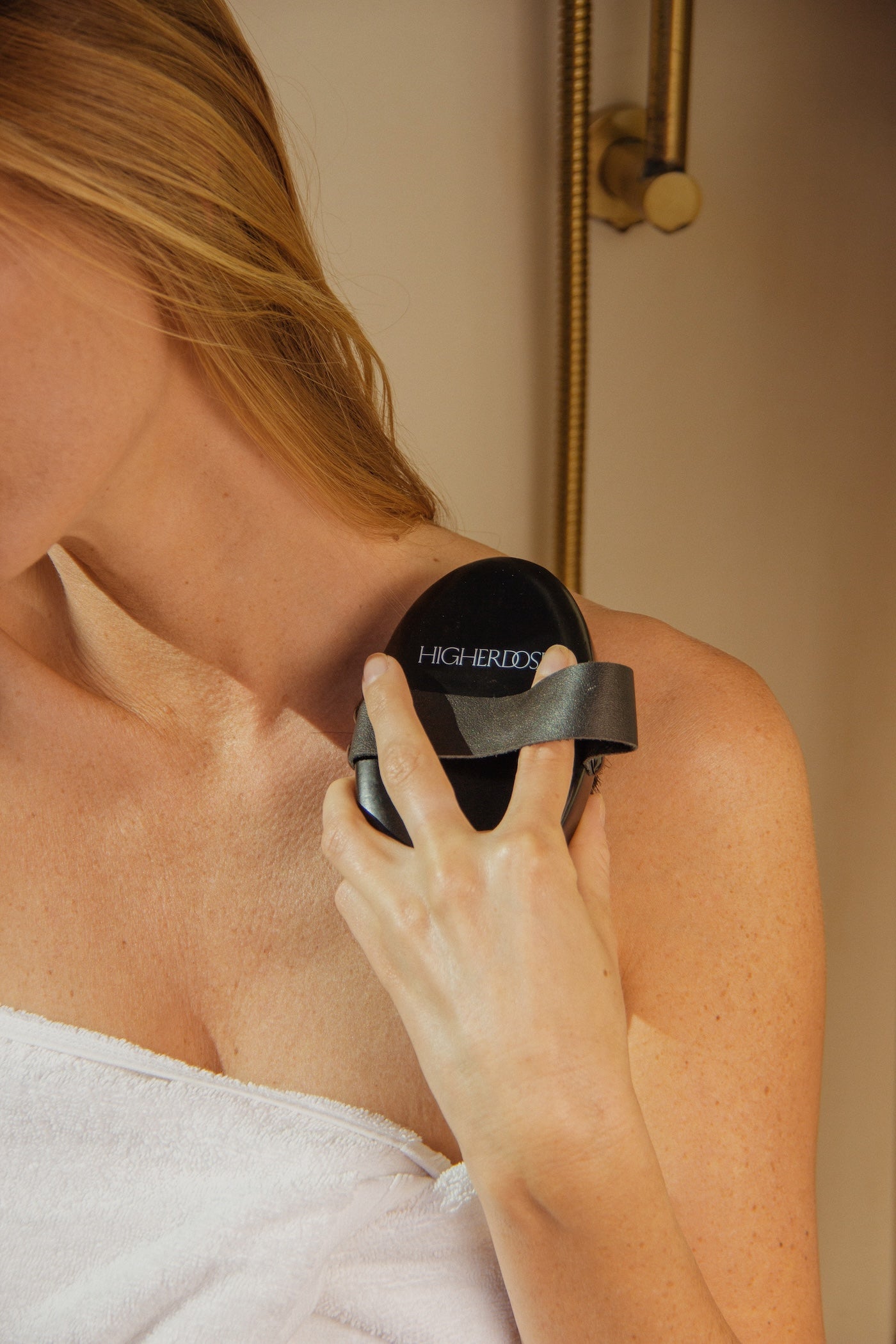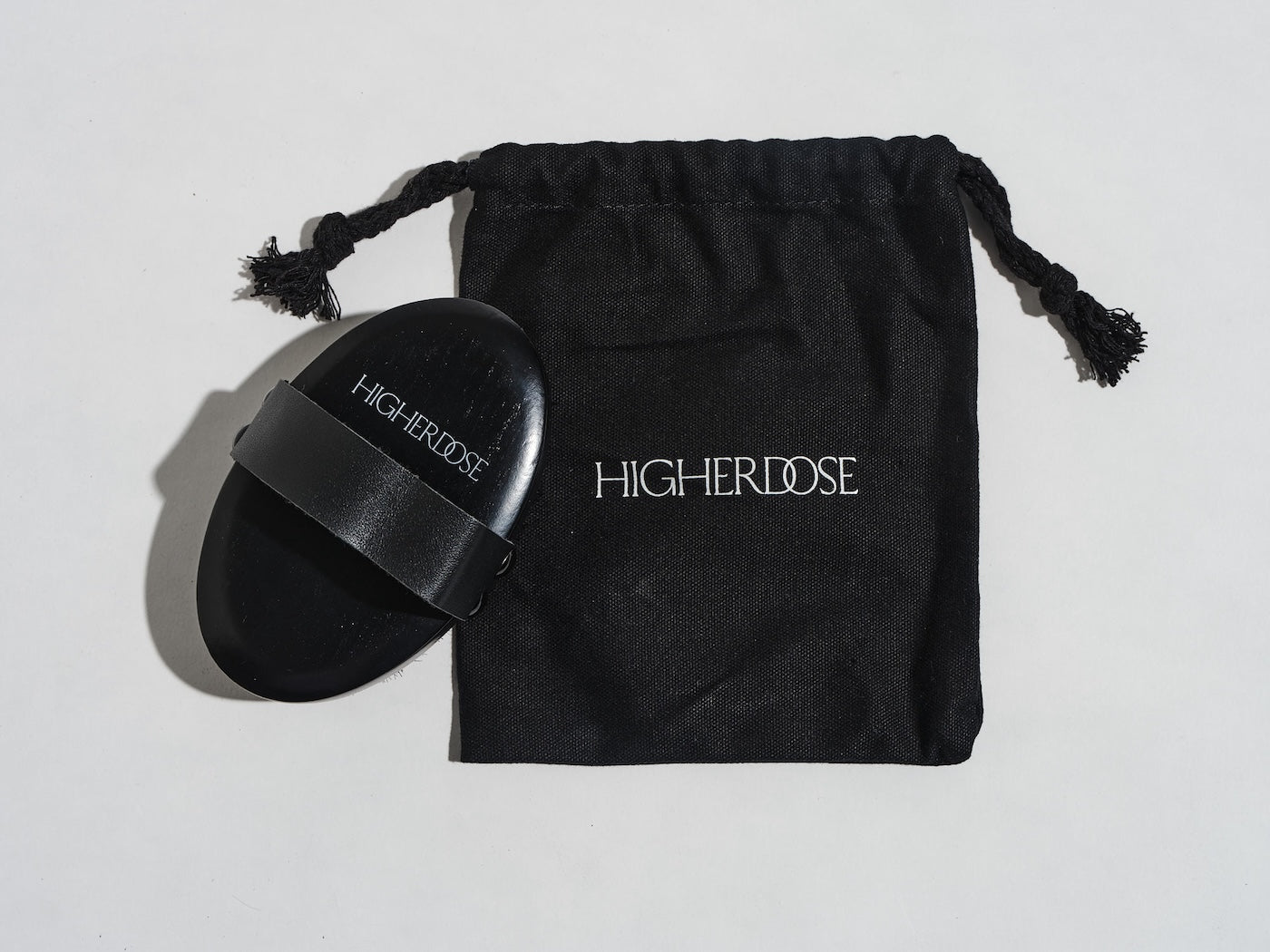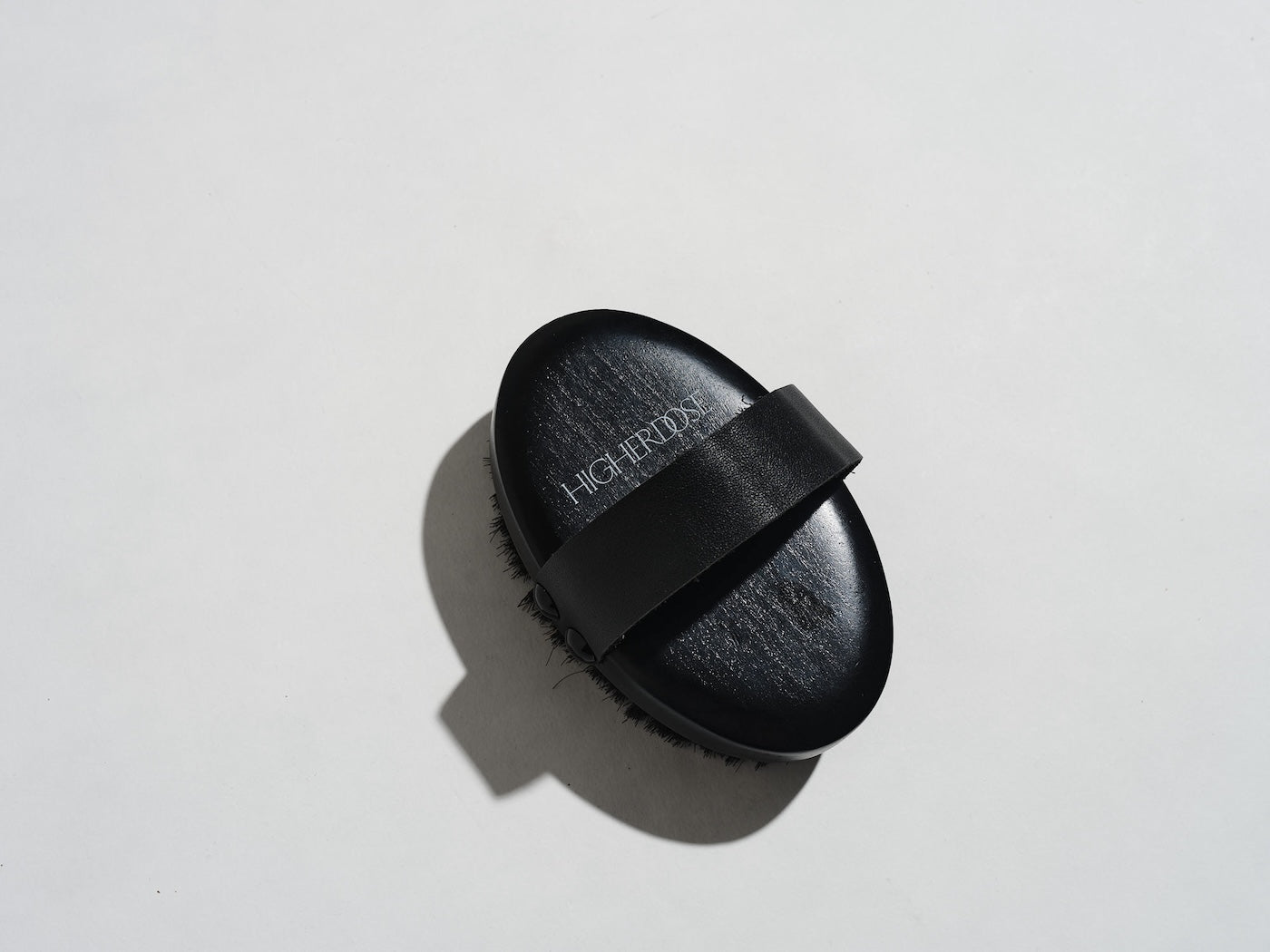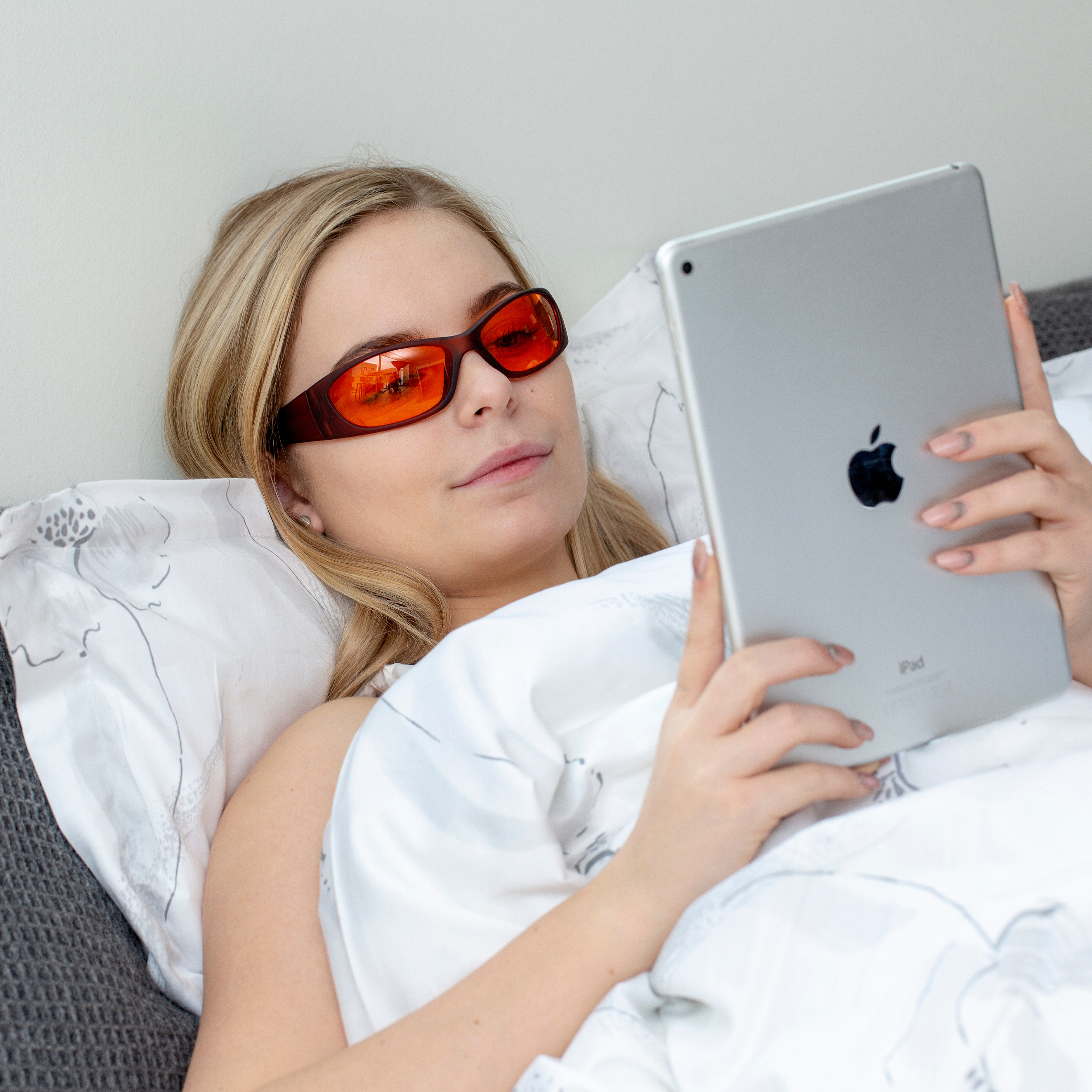
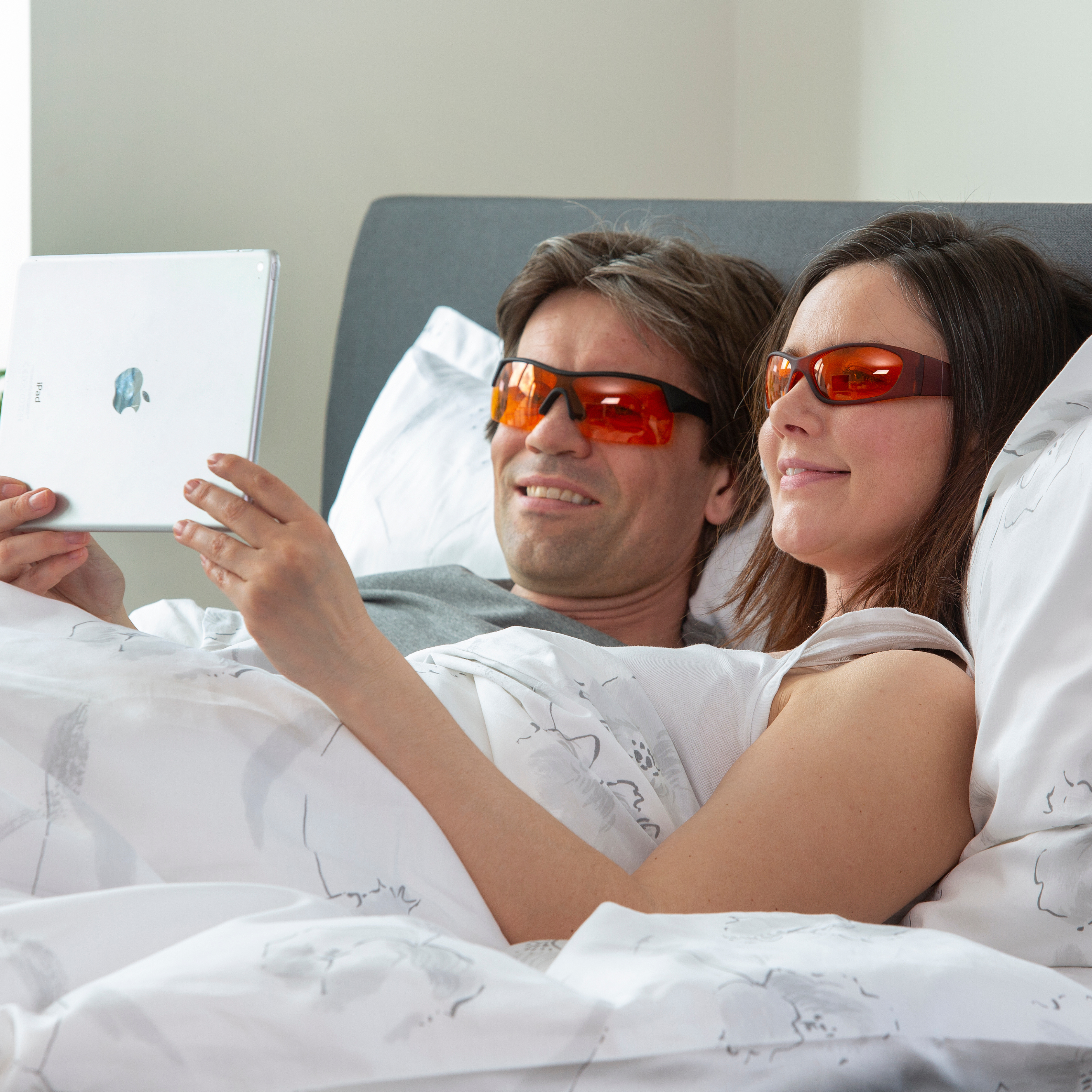
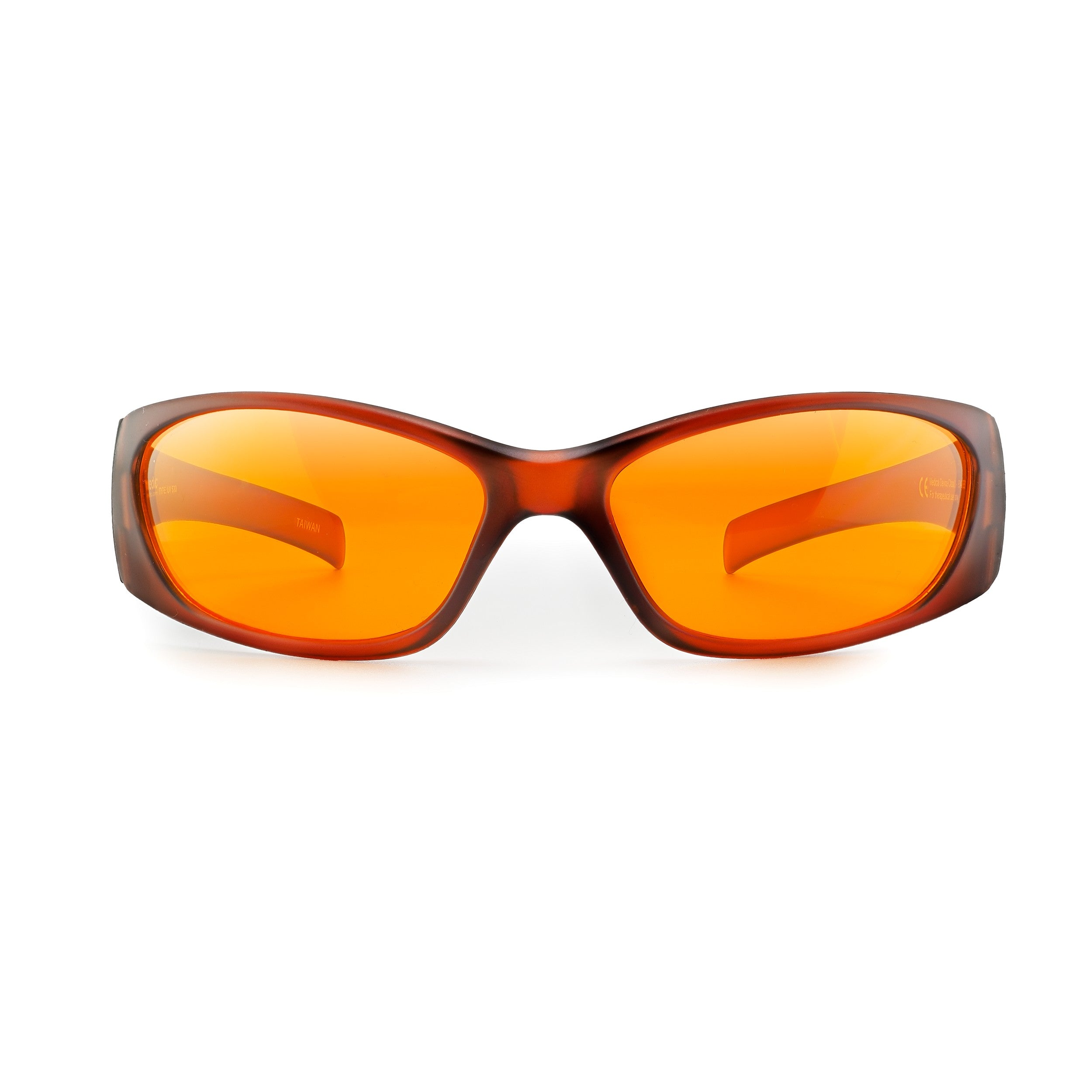
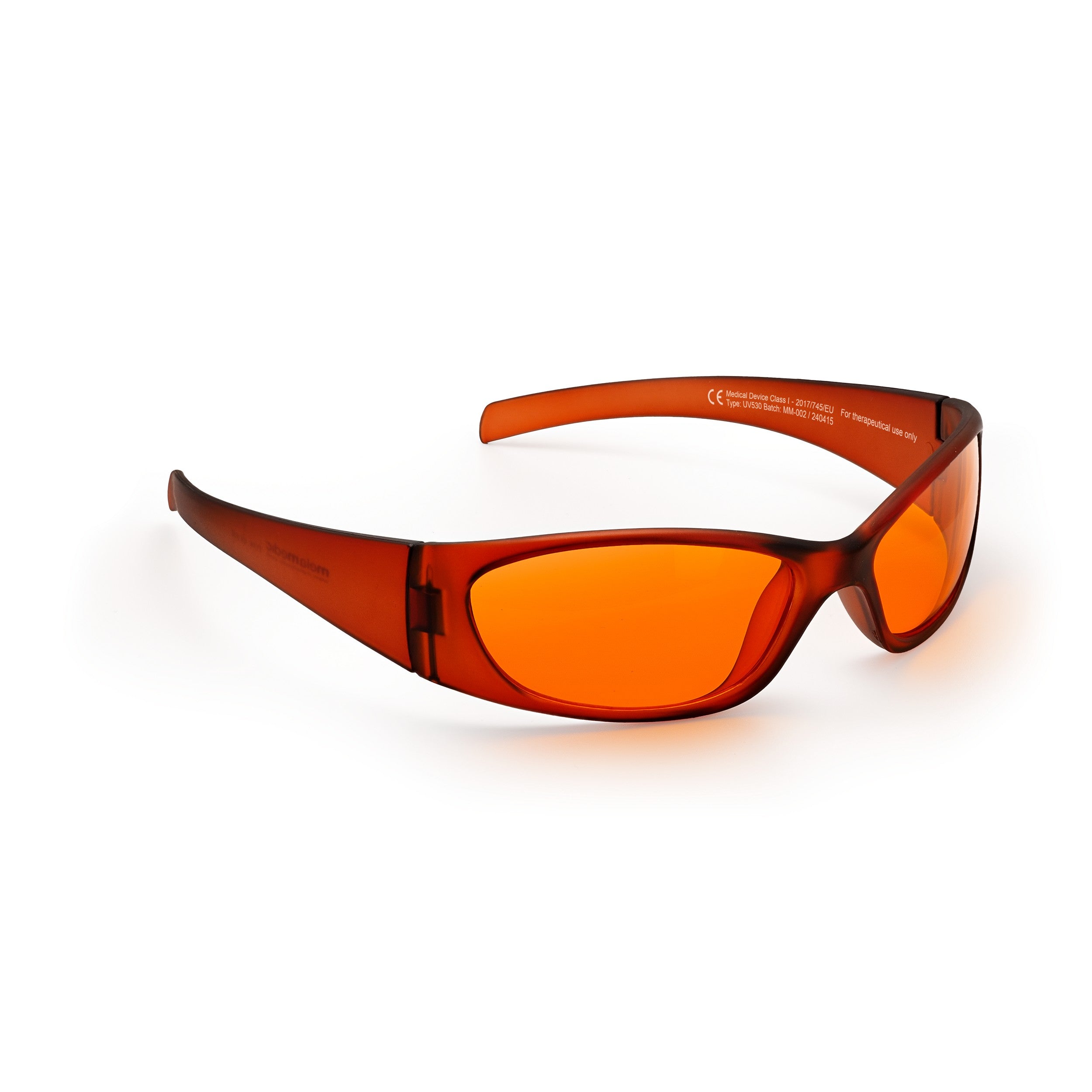
MelaMedic® certified sleep glasses ROME
Medical purposes Blue light blocking glasses are a science-based tool for natural circadian rhythm regulation and better sleep quality. They effectively filter blue light up to 530 nm, stimulating the production of melatonin, a hormone that regulates the sleep cycle. As a result, the light emitted by screens no longer suppresses melatonin synthesis, which helps you fall asleep faster and rest better.
The effectiveness of the glasses has been confirmed by clinical studies, which have shown a positive effect on reducing evening wakefulness in adolescents and in the treatment of patients with bipolar disorder . The glasses are ideal for people who work shift work, frequently travel across time zones, or want to naturally improve their sleep quality.
MelaMedic Rome glasses feature a classic design that fits perfectly into both home and work environments. Their lightweight and ergonomic frames provide maximum comfort even during long periods of wear, while advanced lens technology ensures effective blue light blocking.
- Classic design suitable for everyday use
- Frame width: 148 mm – optimal for versatility
- Lightweight, strong and durable polycarbonate frame
- Blue light filtering without image distortion
Take care of your sleep quality and protect your eyes from digital light with MelaMedic Rome!
MelaMedic glasses are certified medical devices that comply with the European Union Medical Devices Directive 93/42/EEC and the EN ISO 12312-1:2013+A1:2015 standard.

Description
MelaMedic sleep glasses are designed for the prevention and treatment of sleep disorders. They help regulate circadian rhythms, especially beneficial for people who work at night or travel through different time zones (jet lag). Using these glasses stimulates the production of melatonin, a hormone that regulates the sleep cycle, improves sleep quality and supports the body's natural physiological processes.
Before use
- You can use it in the evenings while watching TV, reading or working on the computer.
- The habituation period can last up to a week, and in some cases even up to 30 days.
- It is recommended to wear glasses at the same time every evening to maintain a stable internal body clock.
- Wear your glasses regularly – for example, if you wear them from 9:00 PM, your melatonin cycle will naturally end around 7:00 AM.
How to use?
- Sleep disorders: Eyeglass filters block blue light, which suppresses melatonin production. Wearing them 1-3 hours before bed helps the body produce more melatonin, making it easier to fall asleep and wake up naturally.
- Night work: It is recommended to combine with light therapy - use bright lighting during the day, and wear glasses after work to prepare the body for sleep.
- Travel and Jet Lag: Wearing glasses according to an individual schedule can reduce the effects of jet lag and speed up the body's adaptation to the new rhythm.
Side effects
No adverse effects have been reported when the glasses are used as directed. Some people may experience mild dizziness during the first few days, which is temporary.
Care and storage
Cleaning: Use lukewarm water and a soft cloth. Avoid aggressive chemical cleaners.
Storage: Glasses should be stored in a protective case, avoiding exposure to strong pressure or heat.
Security
⚠ Do not use the glasses while driving or operating machinery, as they may alter color perception and increase fatigue.
⚠ Do not expose to high temperatures - the glasses are made of polycarbonate and nylon, so they may deform or catch fire.
⚠ If the glasses are damaged, do not use them as they may cause discomfort or injury.
Certificates
MelaMedic glasses comply with the EU Medical Device Directive 93/42/EEC and the EN ISO 12312-1:2013+A1:2015 standard. Their effectiveness has been confirmed by clinical trials. Regular light spectral measurements are performed to ensure that the glasses block light up to a wavelength of 530 nm.
MelaMedic sleep glasses are designed for the prevention and treatment of sleep disorders. They help regulate circadian rhythms, especially beneficial for people who work at night or travel through different time zones (jet lag). Using these glasses stimulates the production of melatonin, a hormone that regulates the sleep cycle, improves sleep quality and supports the body's natural physiological processes.
Before use
- You can use it in the evenings while watching TV, reading or working on the computer.
- The habituation period can last up to a week, and in some cases even up to 30 days.
- It is recommended to wear glasses at the same time every evening to maintain a stable internal body clock.
- Wear your glasses regularly – for example, if you wear them from 9:00 PM, your melatonin cycle will naturally end around 7:00 AM.
How to use?
- Sleep disorders: Eyeglass filters block blue light, which suppresses melatonin production. Wearing them 1-3 hours before bed helps the body produce more melatonin, making it easier to fall asleep and wake up naturally.
- Night work: It is recommended to combine with light therapy - use bright lighting during the day, and wear glasses after work to prepare the body for sleep.
- Travel and Jet Lag: Wearing glasses according to an individual schedule can reduce the effects of jet lag and speed up the body's adaptation to the new rhythm.
Side effects
No adverse effects have been reported when the glasses are used as directed. Some people may experience mild dizziness during the first few days, which is temporary.
Care and storage
Cleaning: Use lukewarm water and a soft cloth. Avoid aggressive chemical cleaners.
Storage: Glasses should be stored in a protective case, avoiding exposure to strong pressure or heat.
Security
⚠ Do not use the glasses while driving or operating machinery, as they may alter color perception and increase fatigue.
⚠ Do not expose to high temperatures - the glasses are made of polycarbonate and nylon, so they may deform or catch fire.
⚠ If the glasses are damaged, do not use them as they may cause discomfort or injury.
Certificates
MelaMedic glasses comply with the EU Medical Device Directive 93/42/EEC and the EN ISO 12312-1:2013+A1:2015 standard. Their effectiveness has been confirmed by clinical trials. Regular light spectral measurements are performed to ensure that the glasses block light up to a wavelength of 530 nm.
